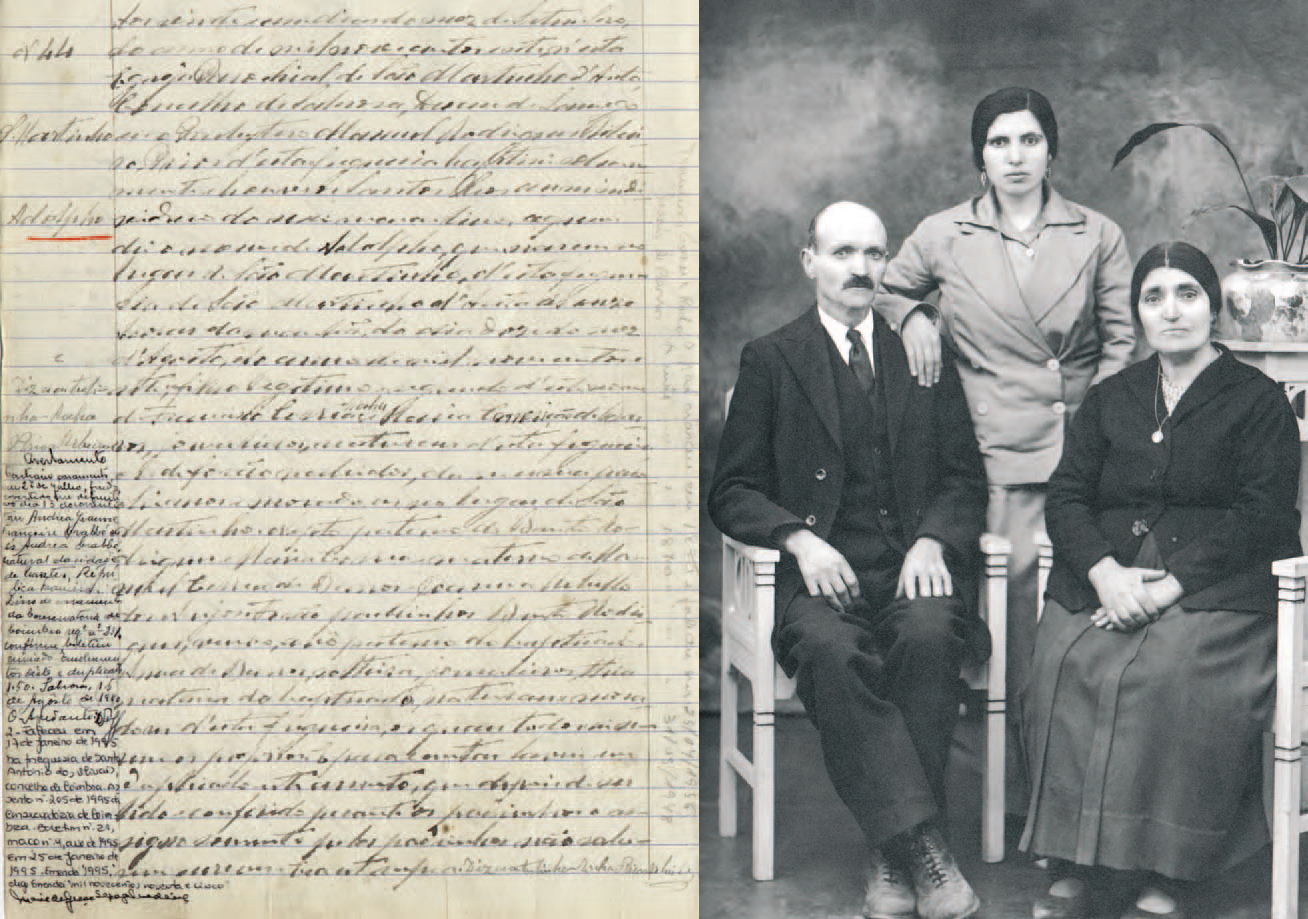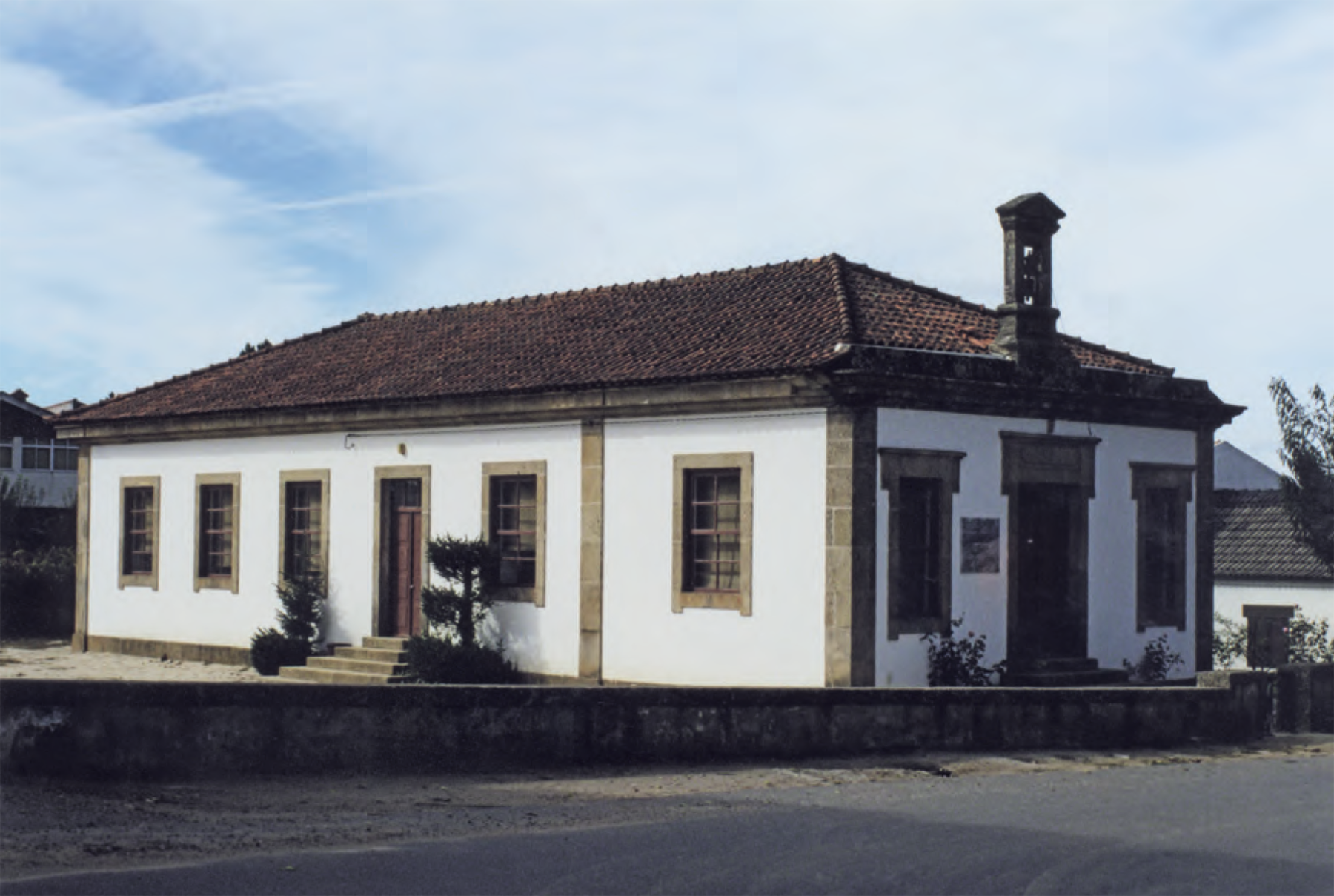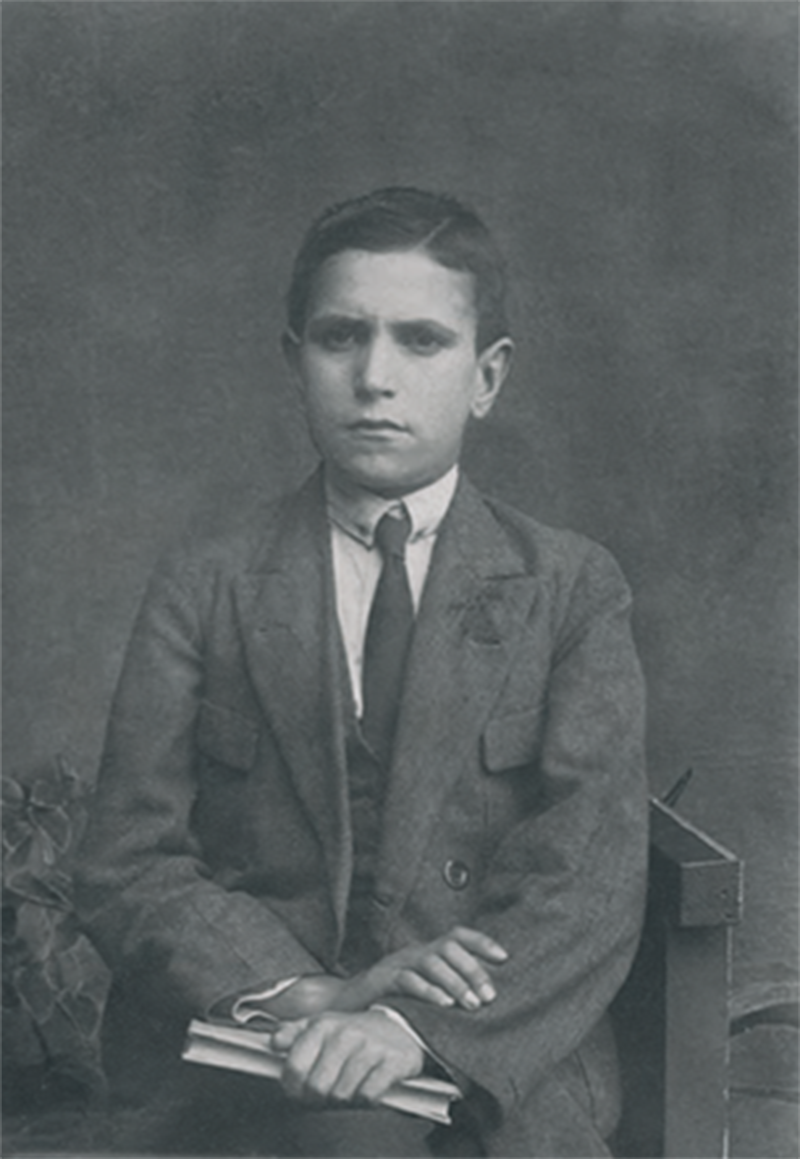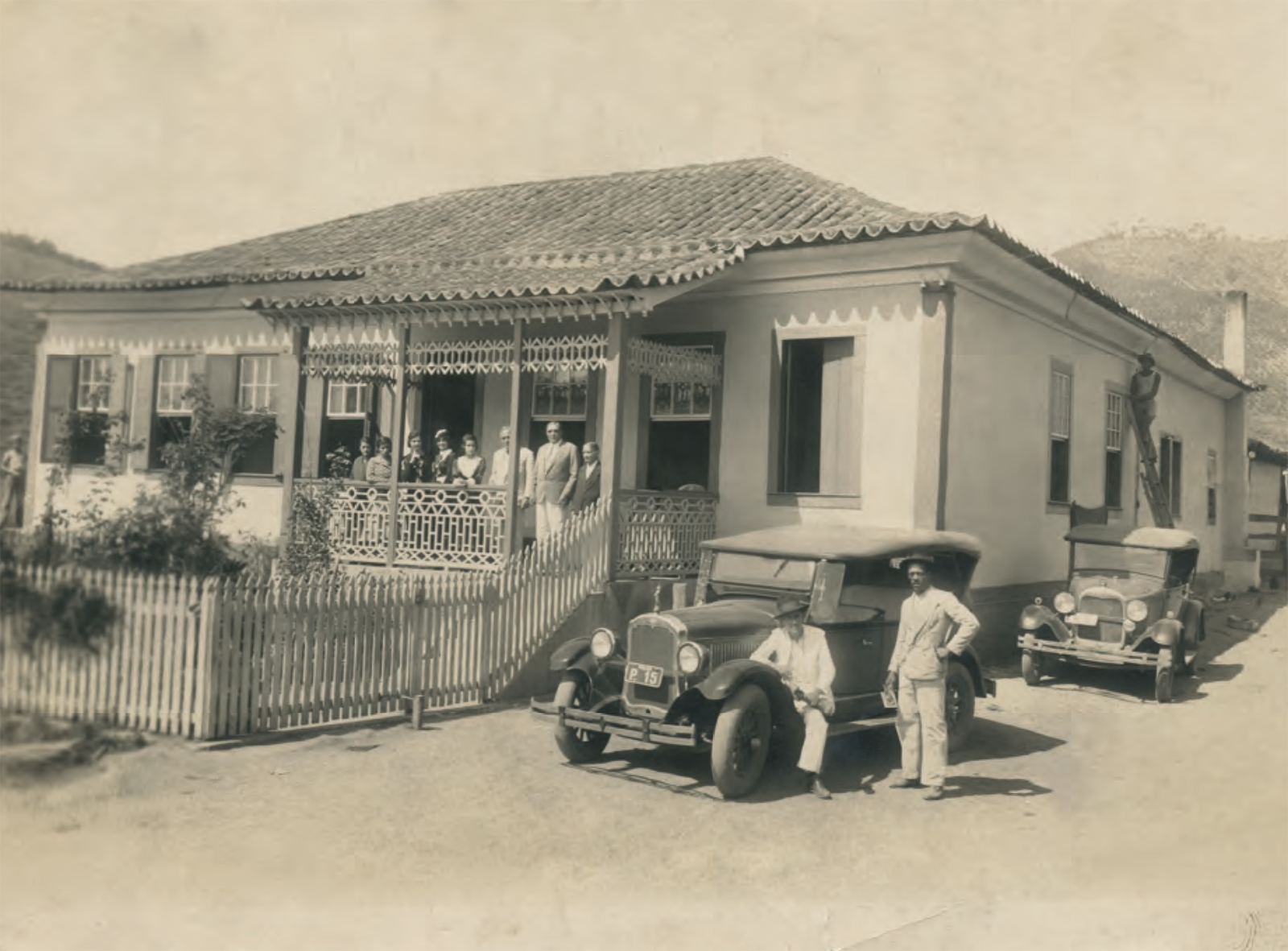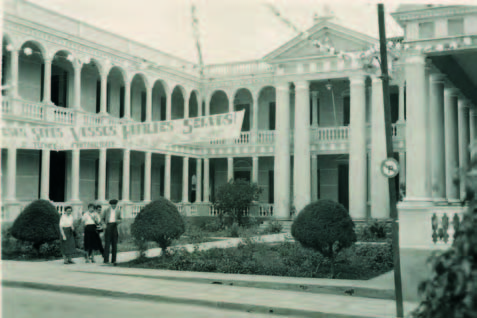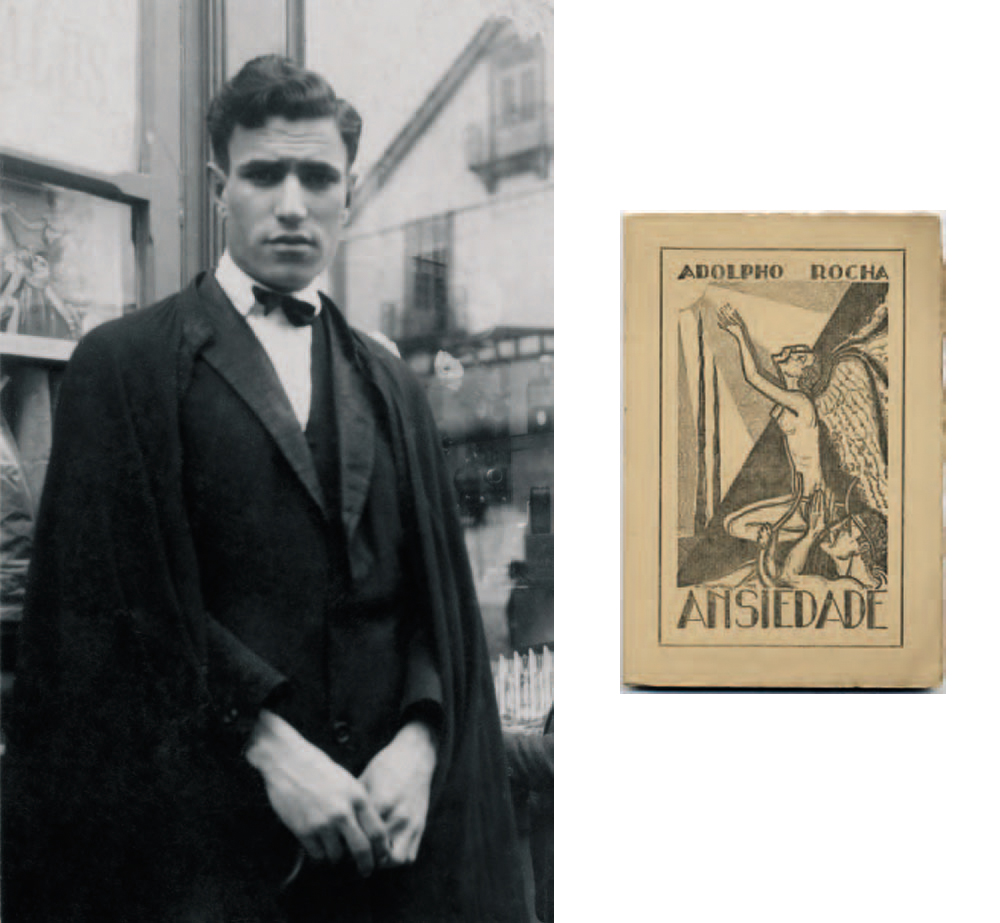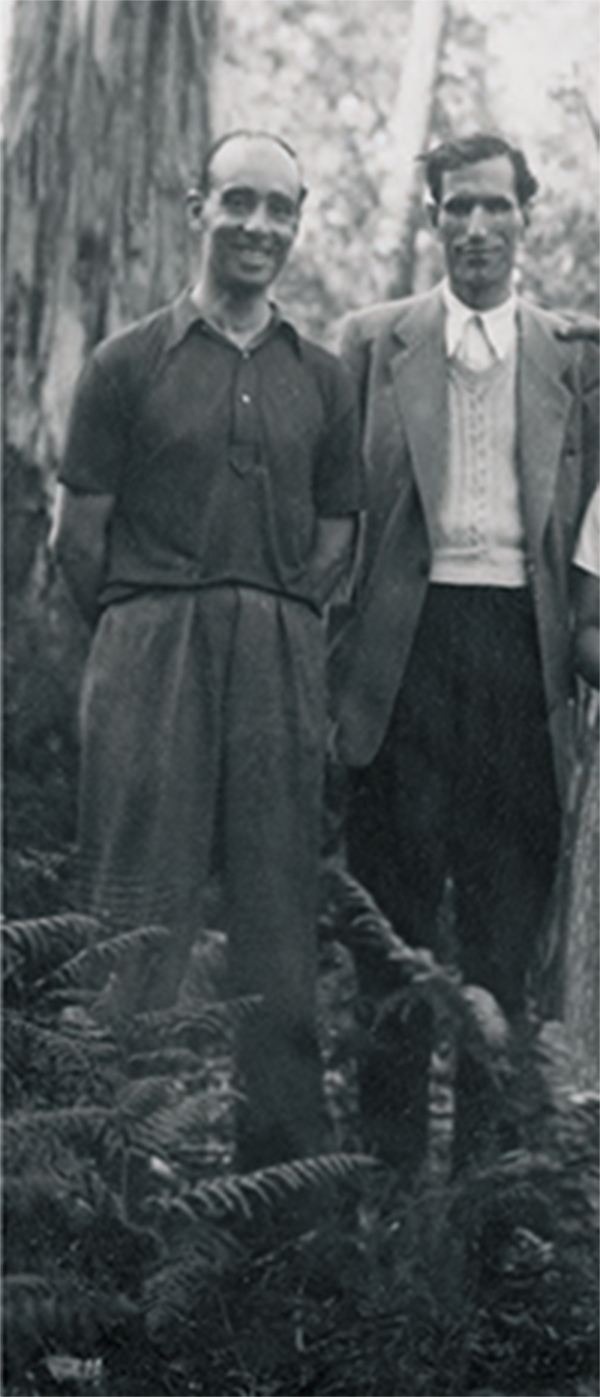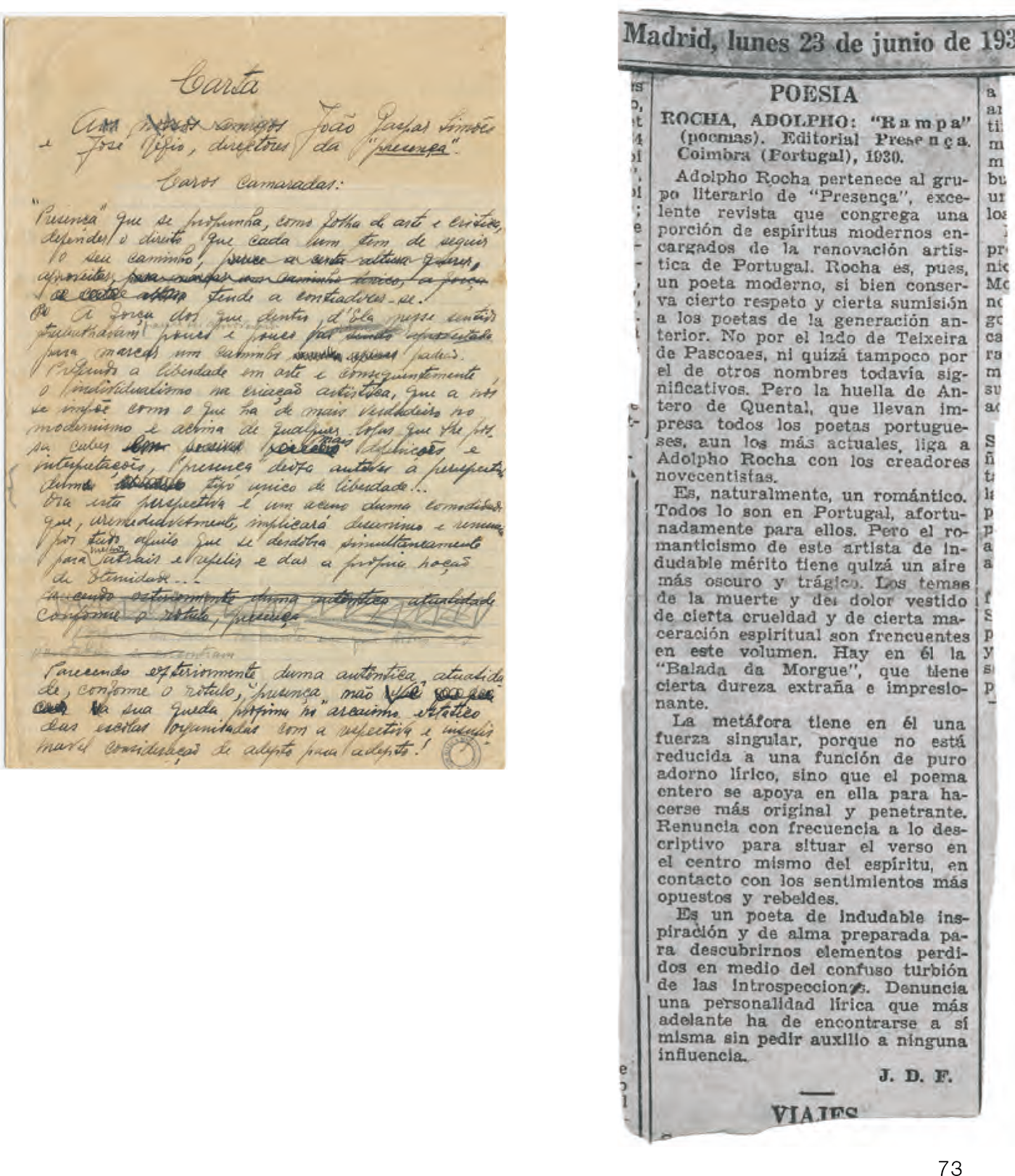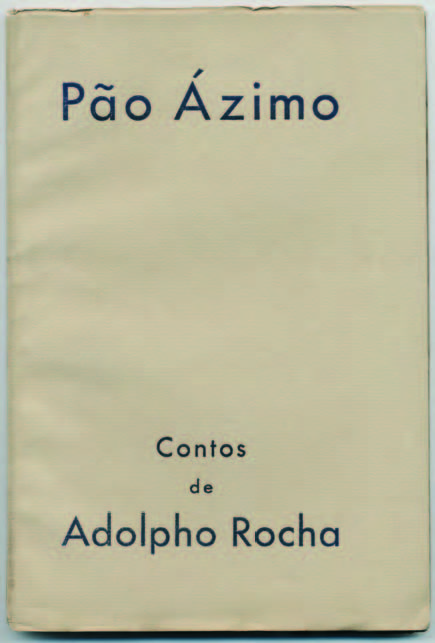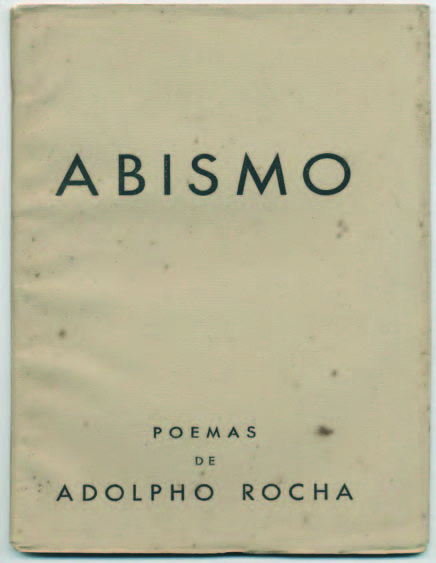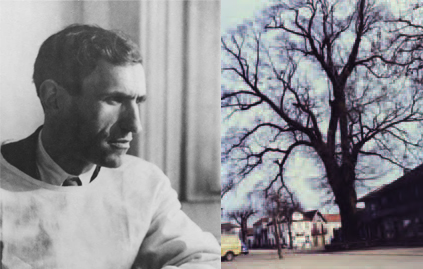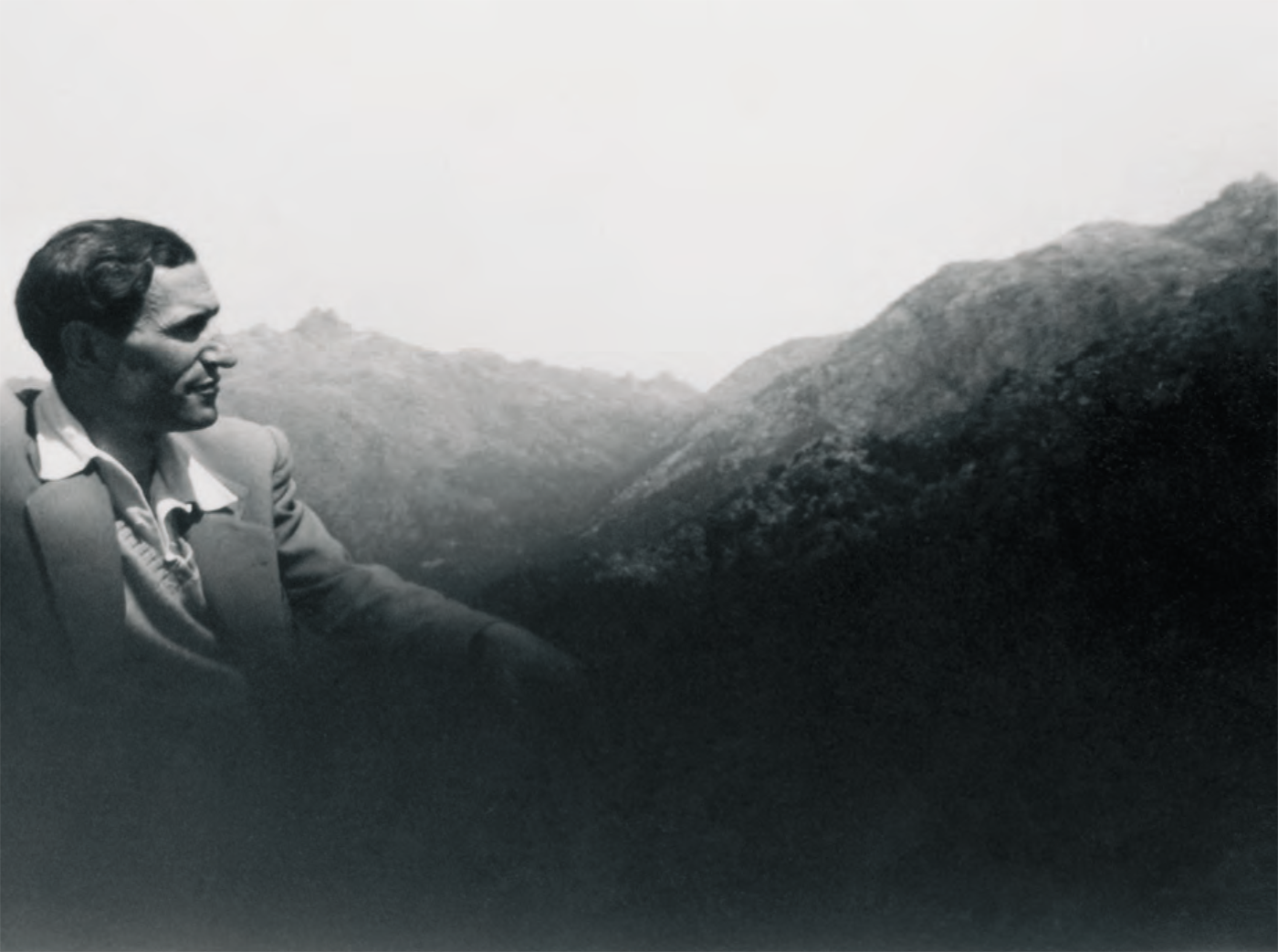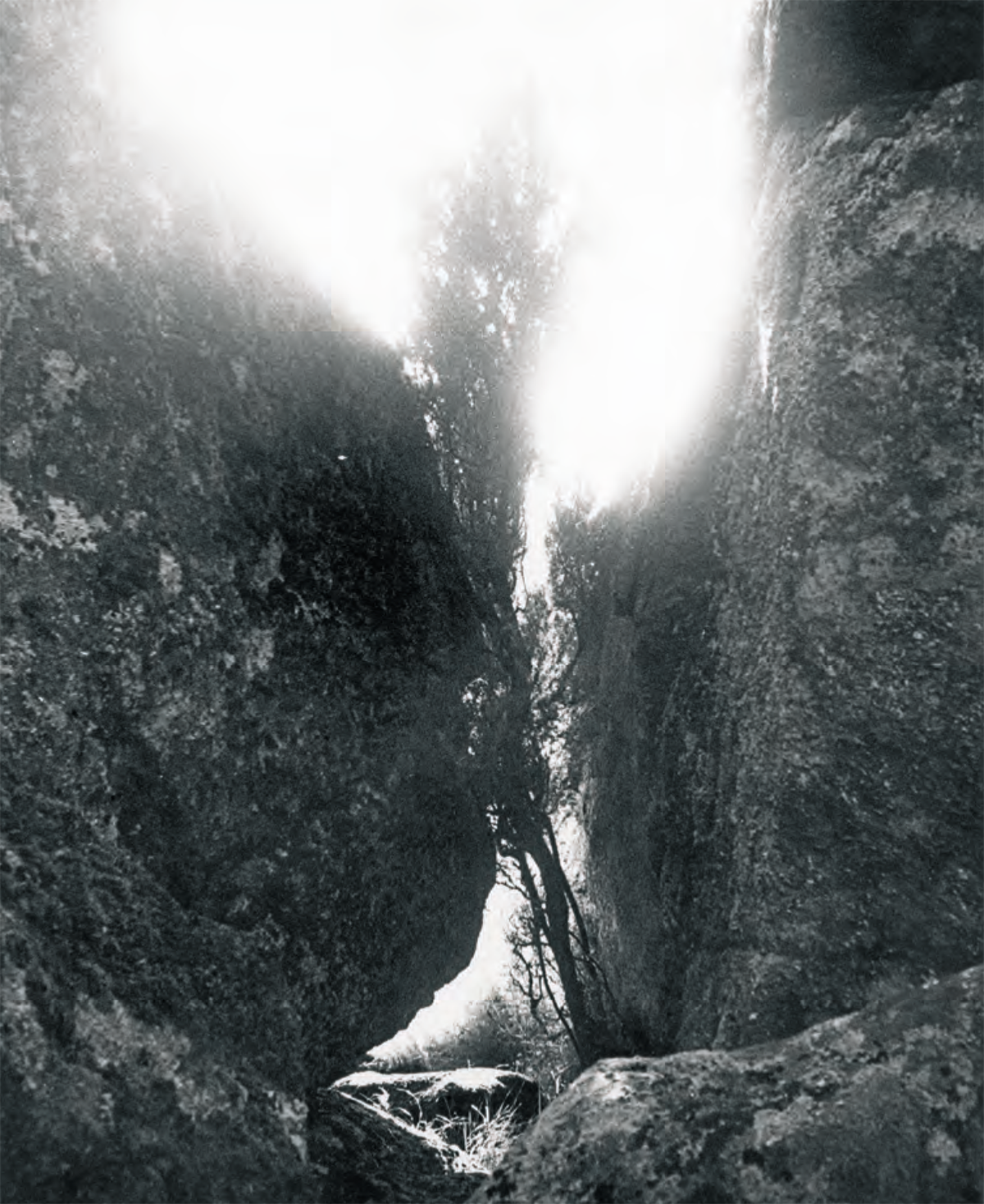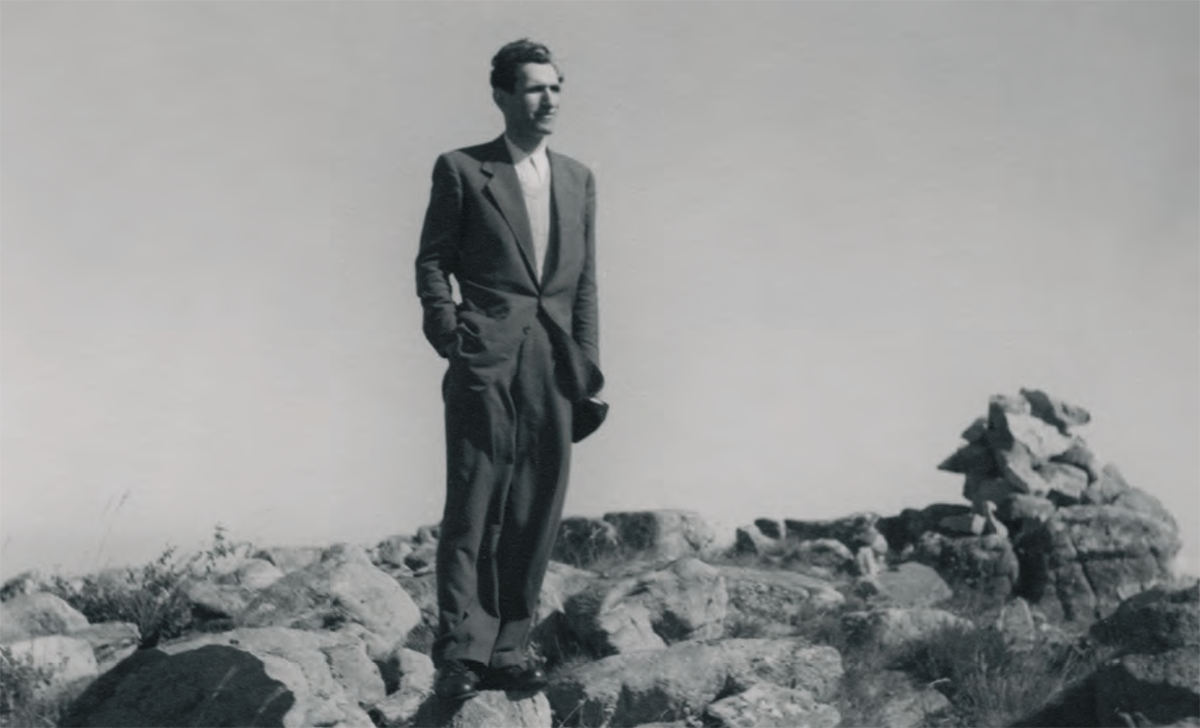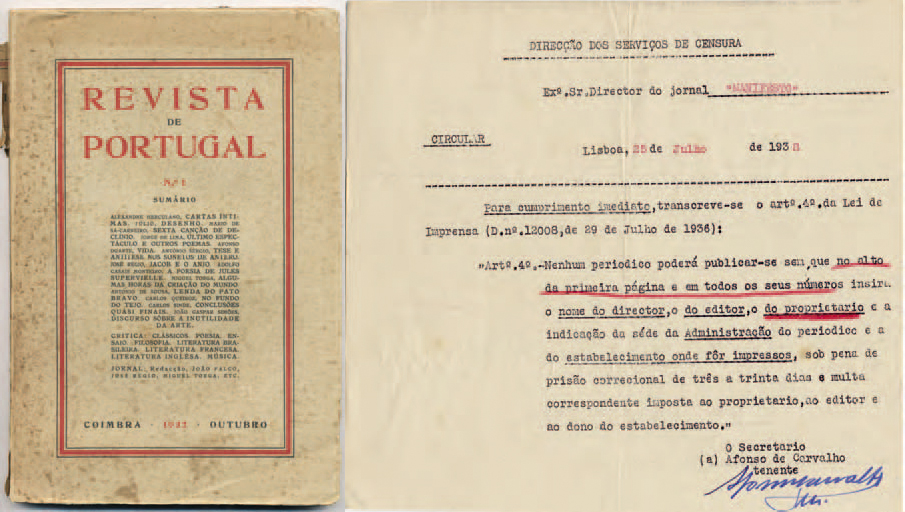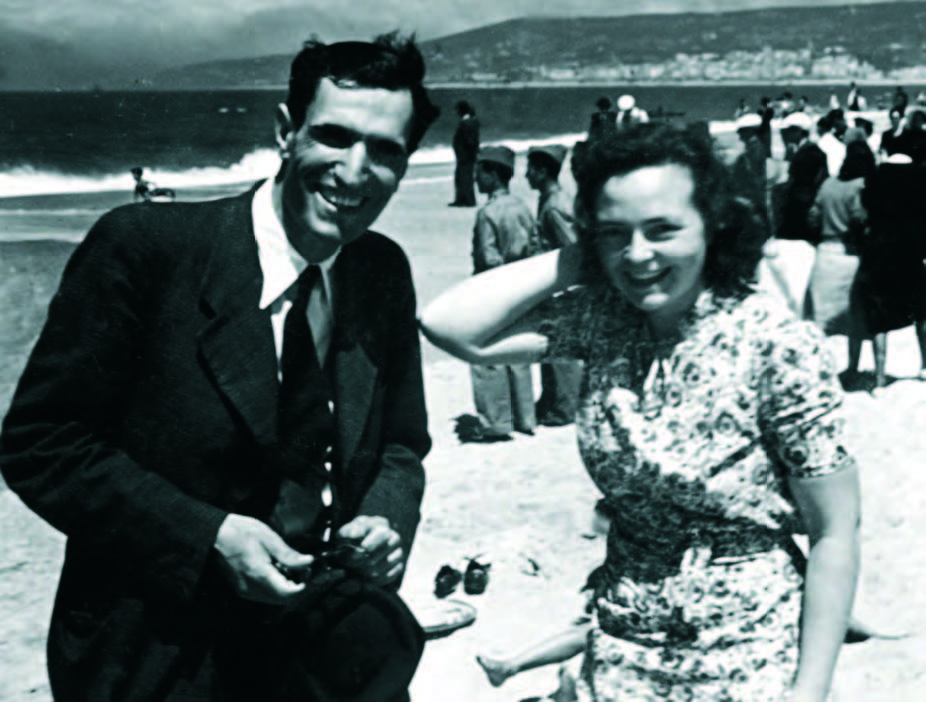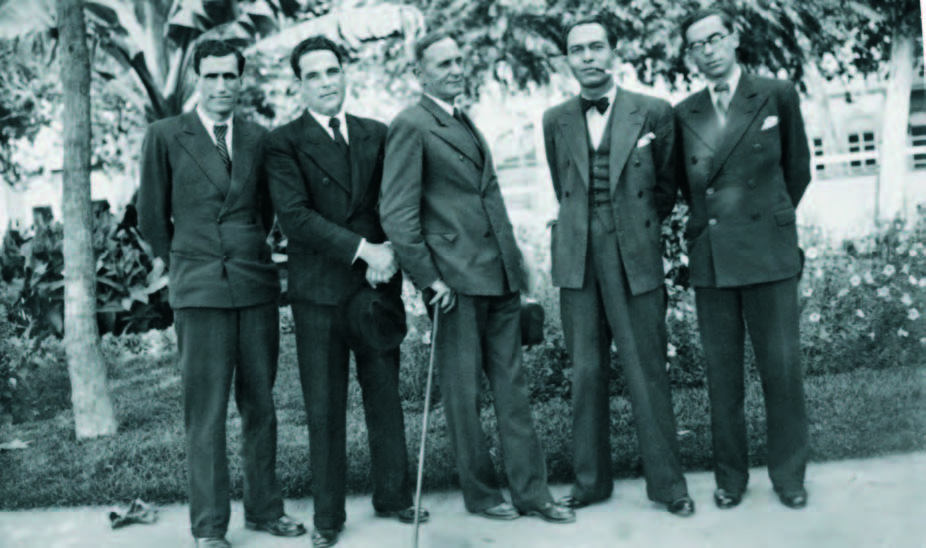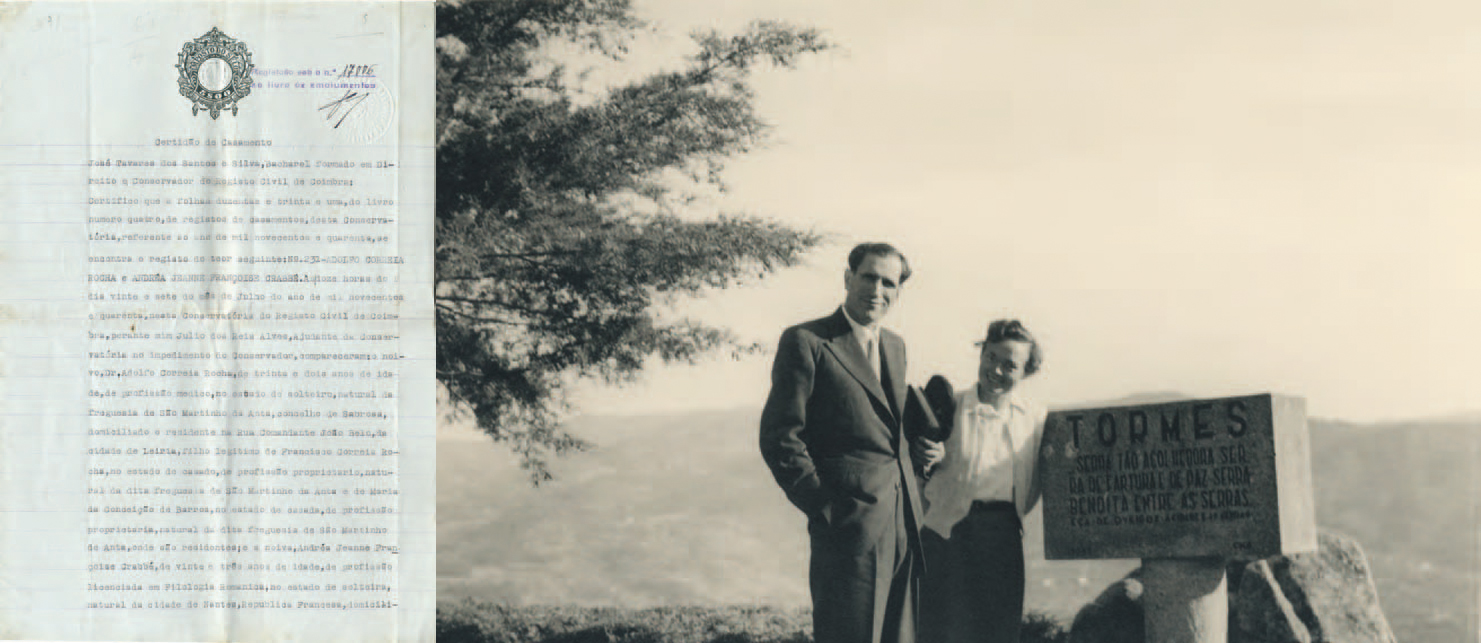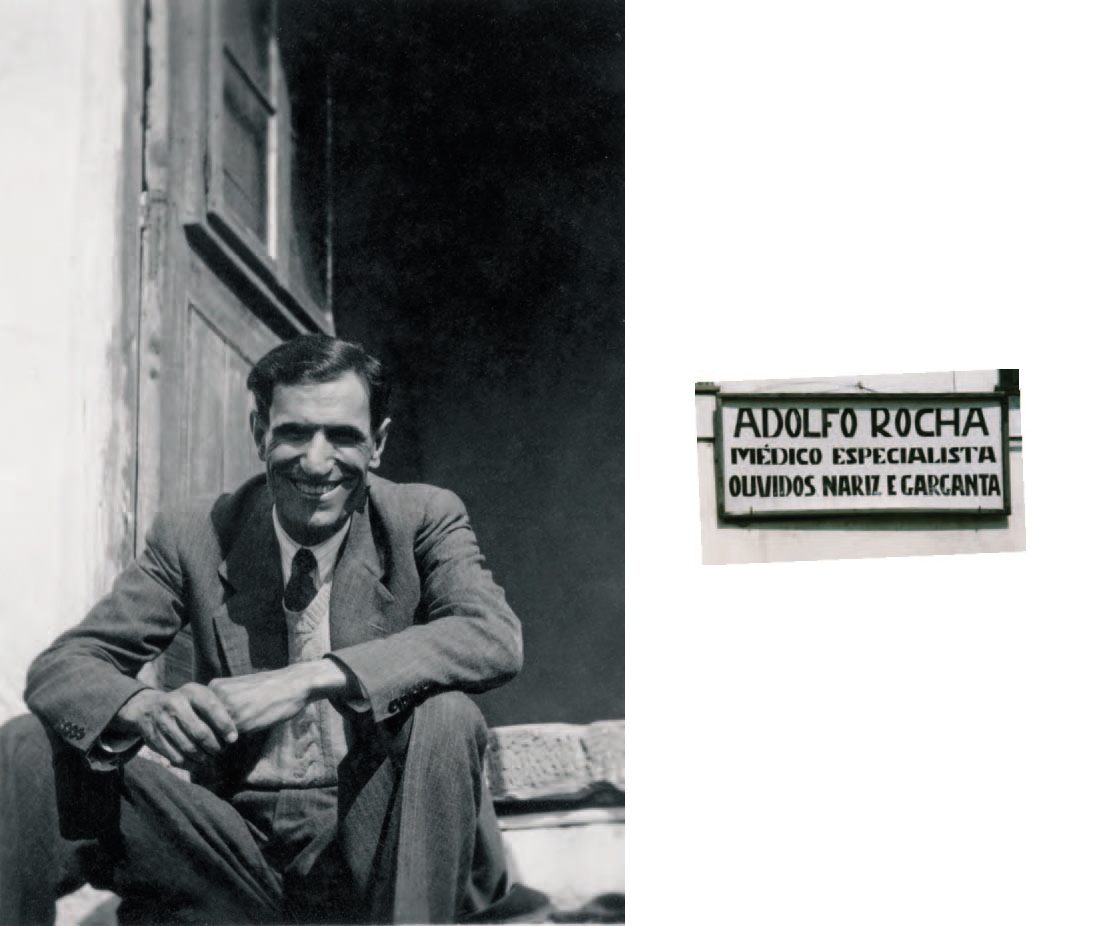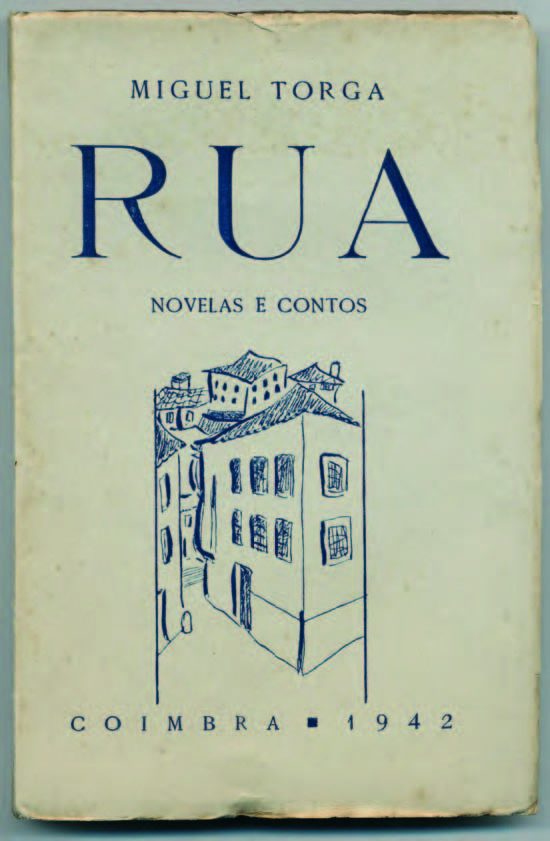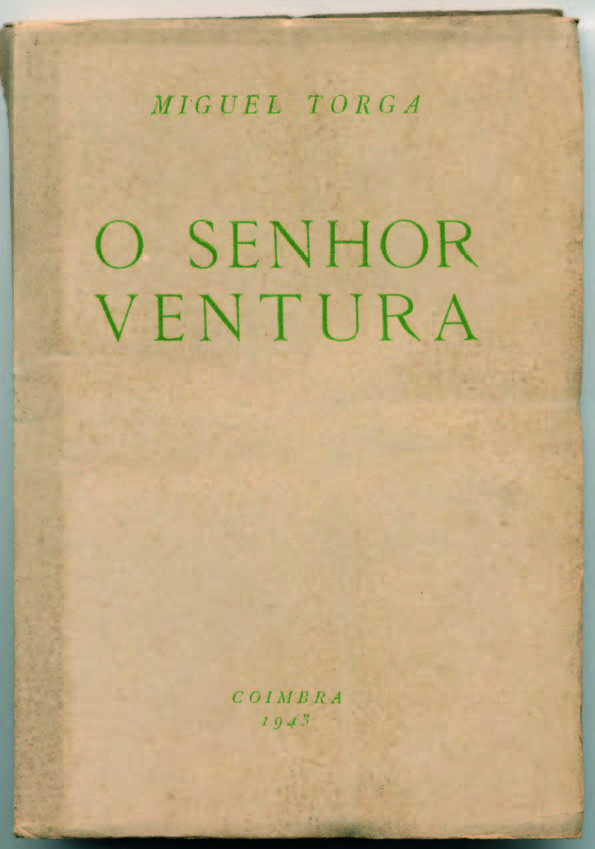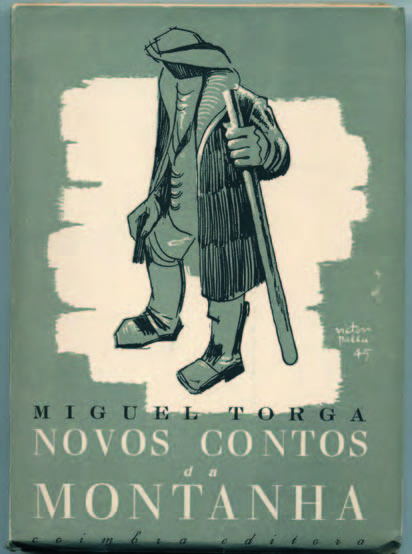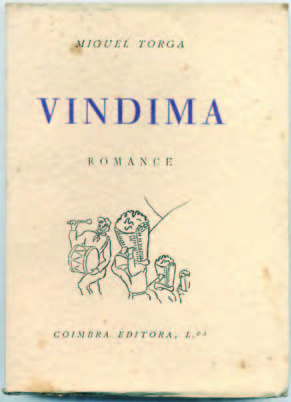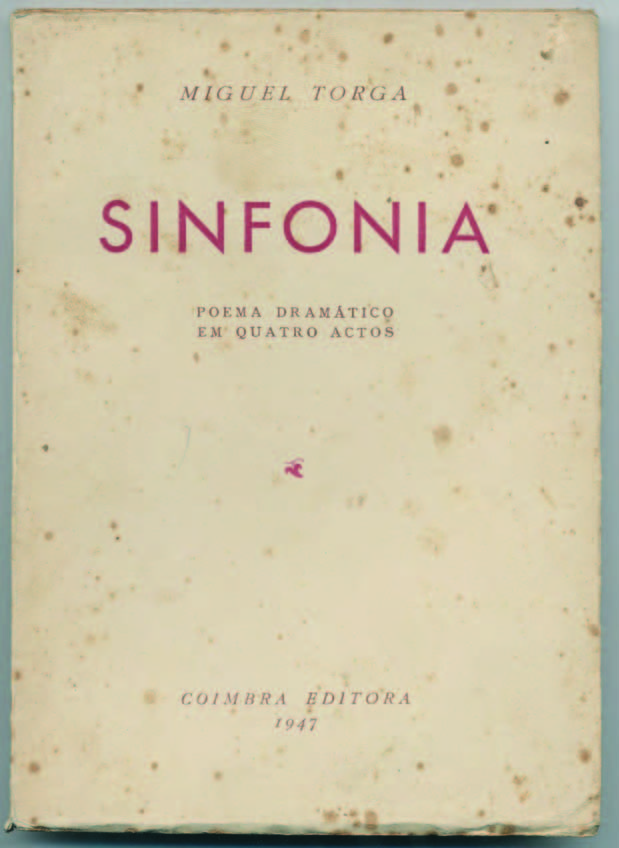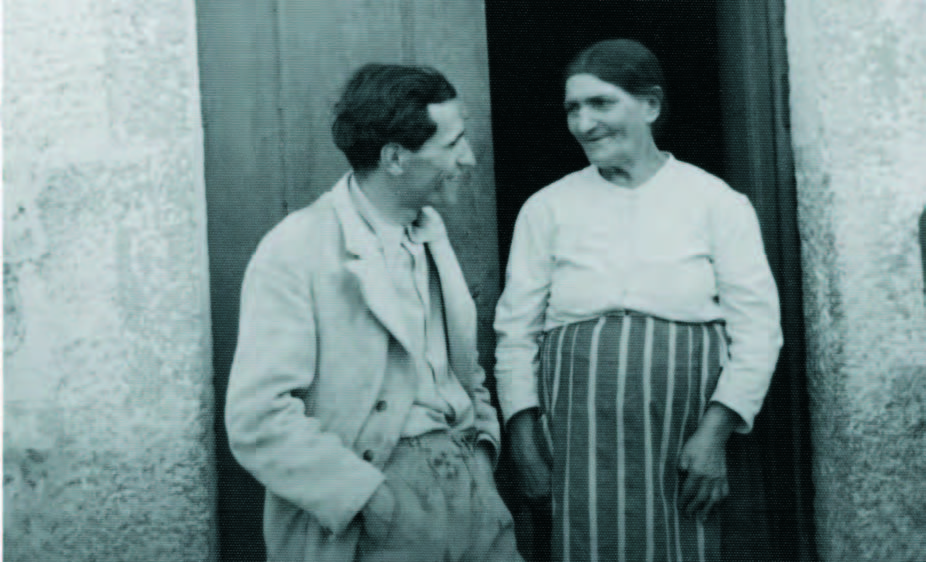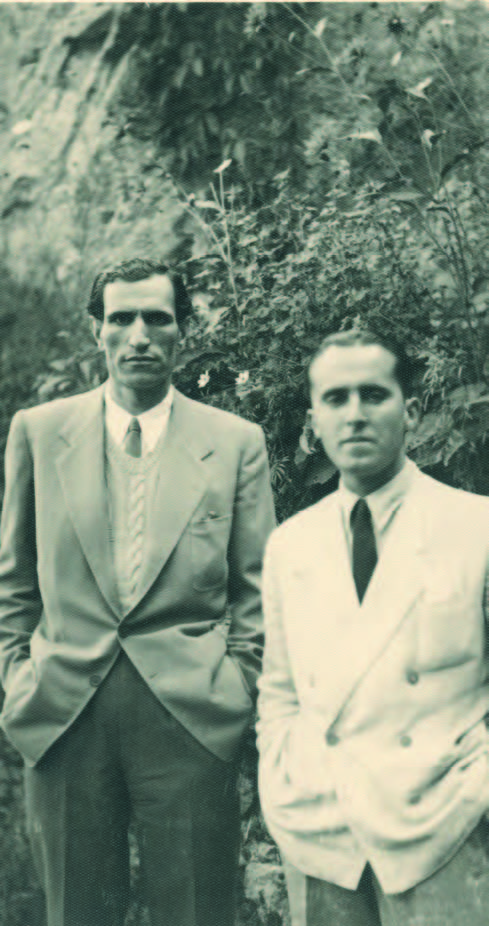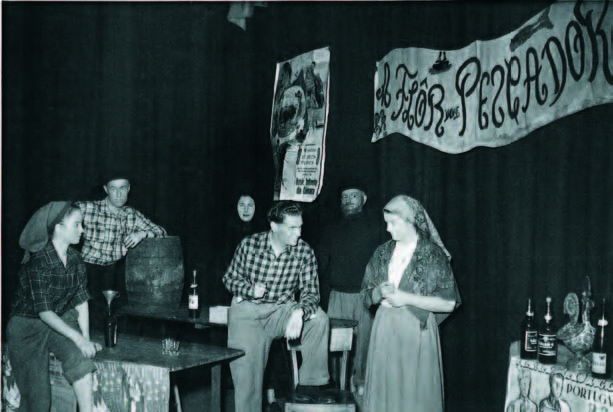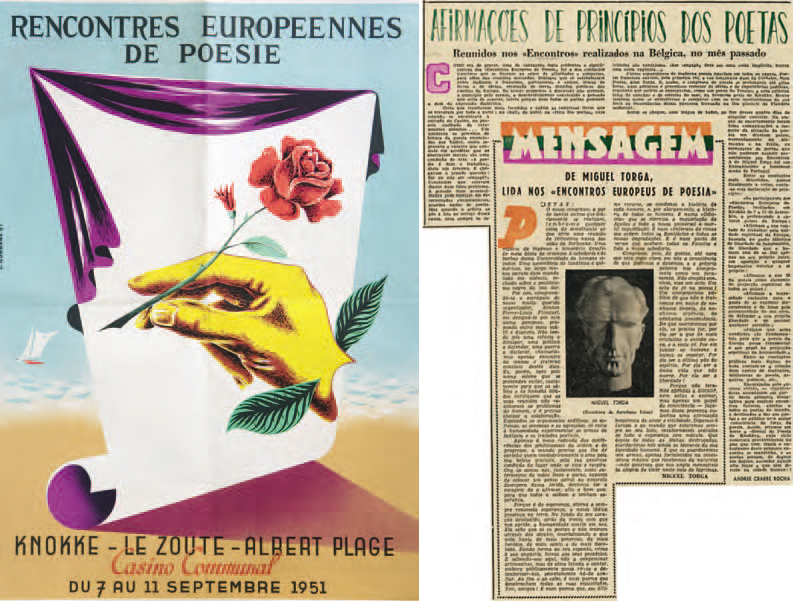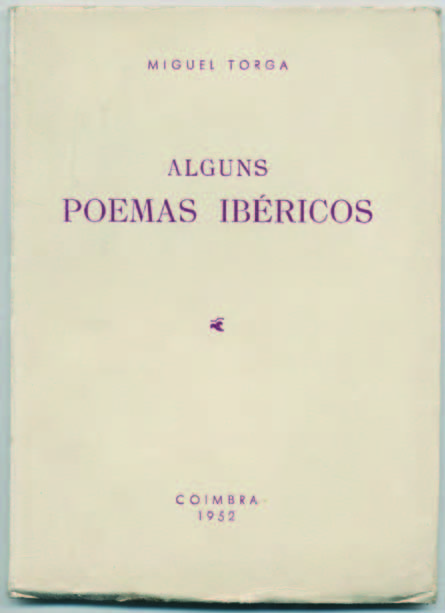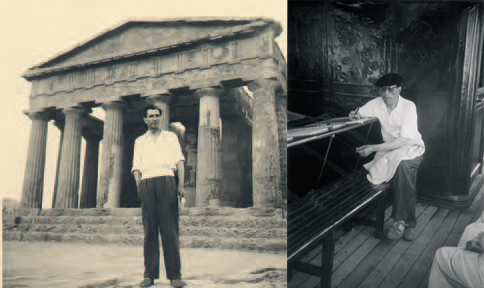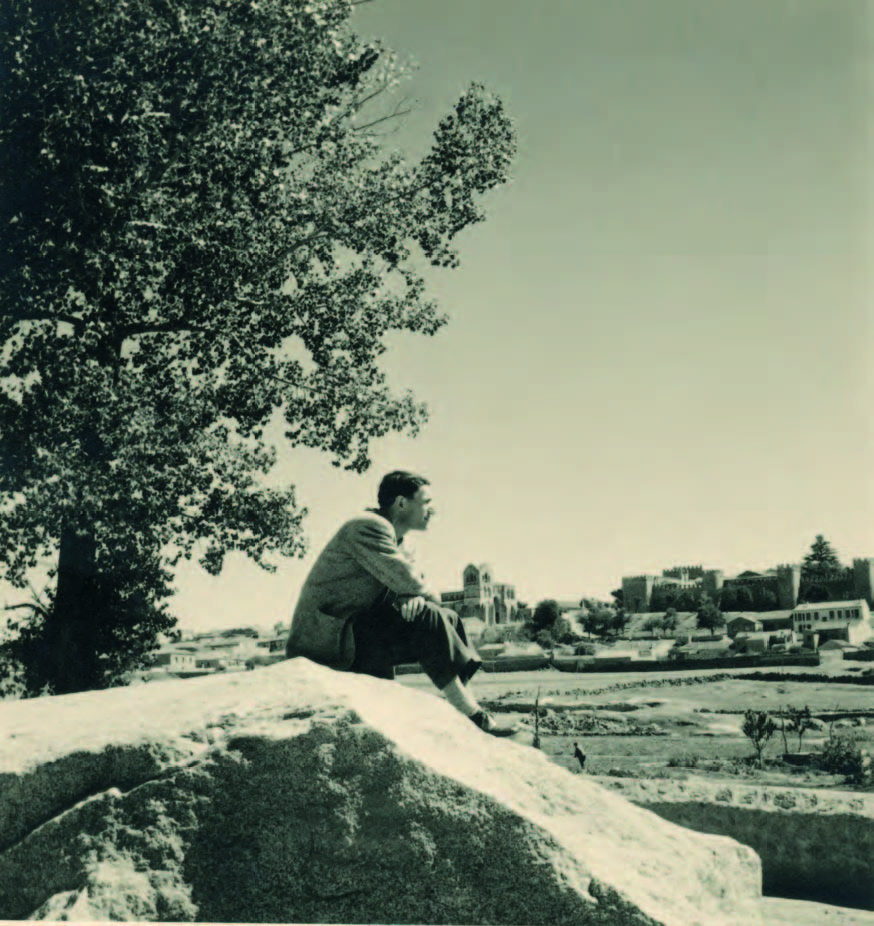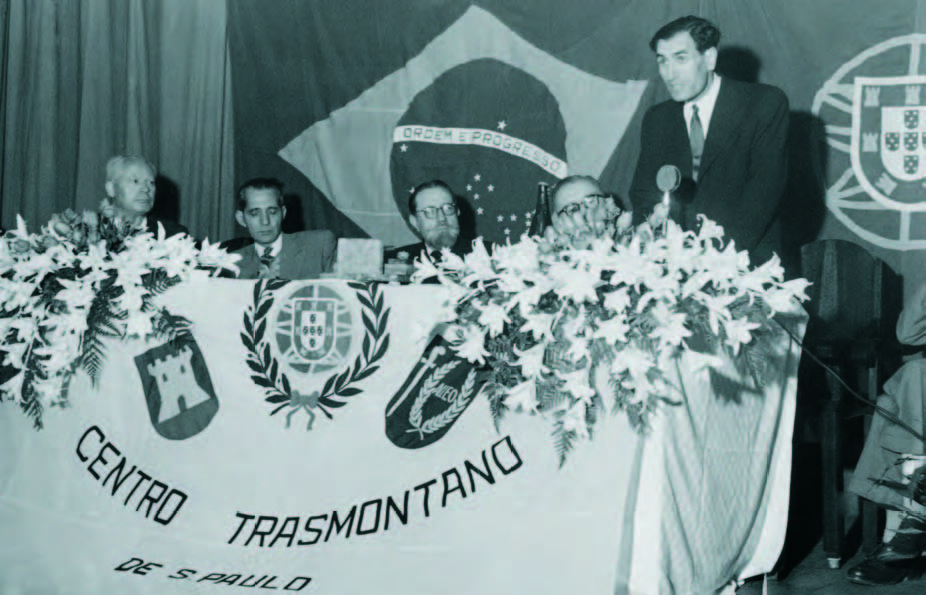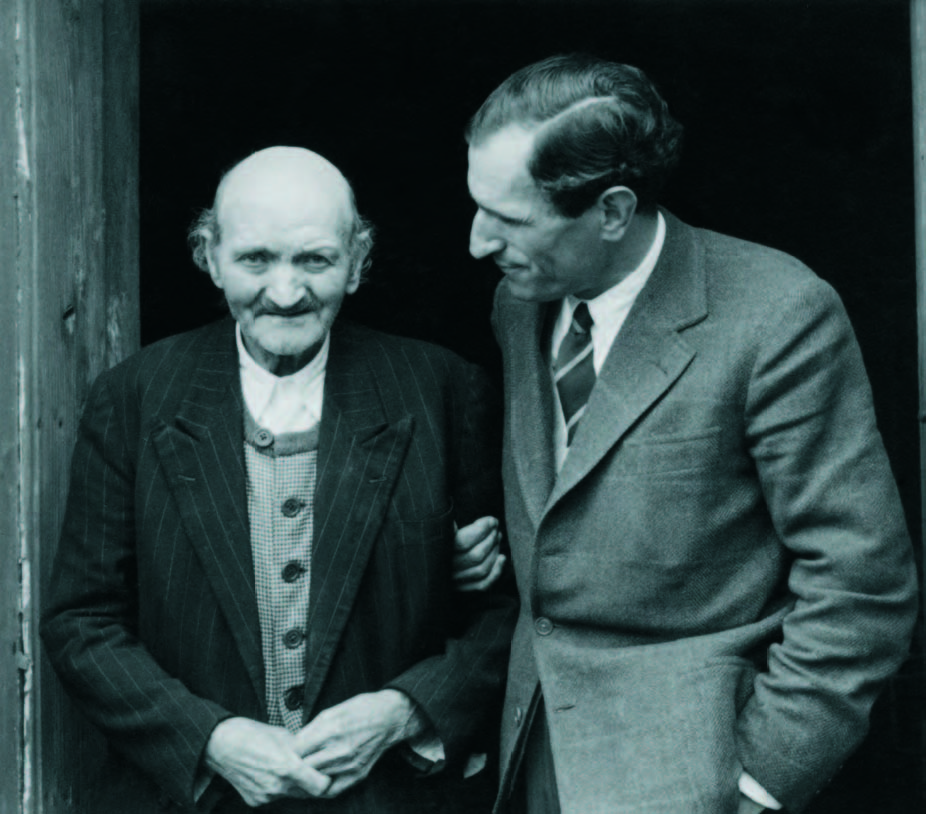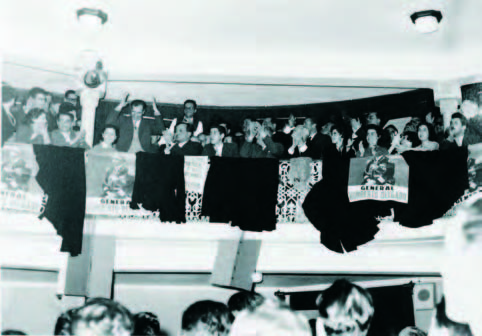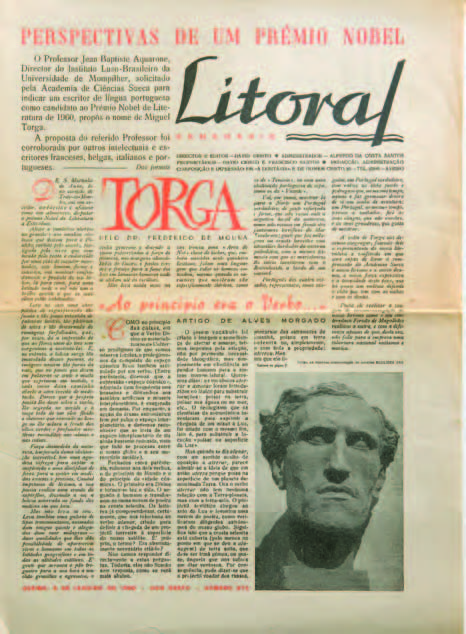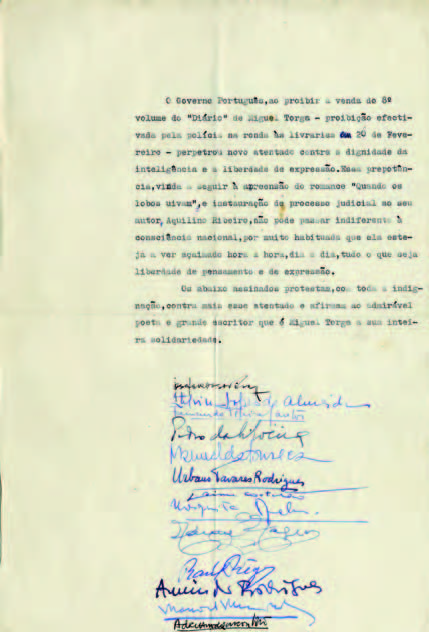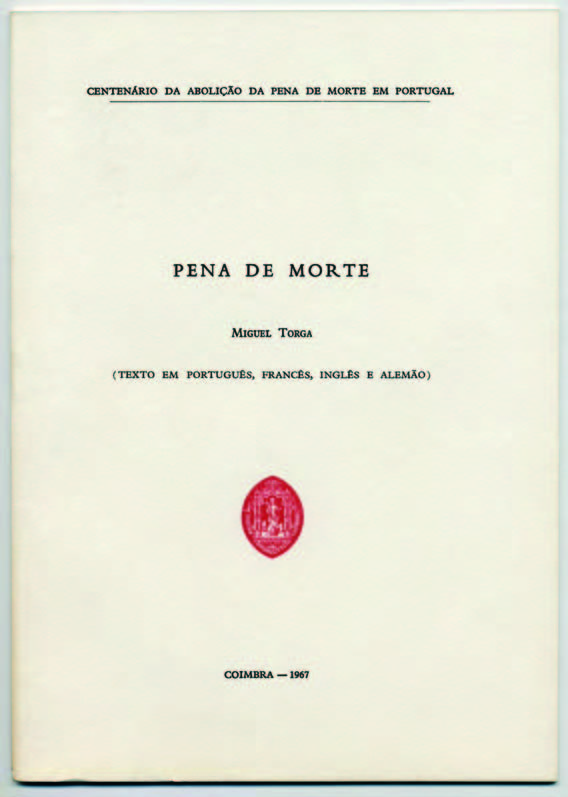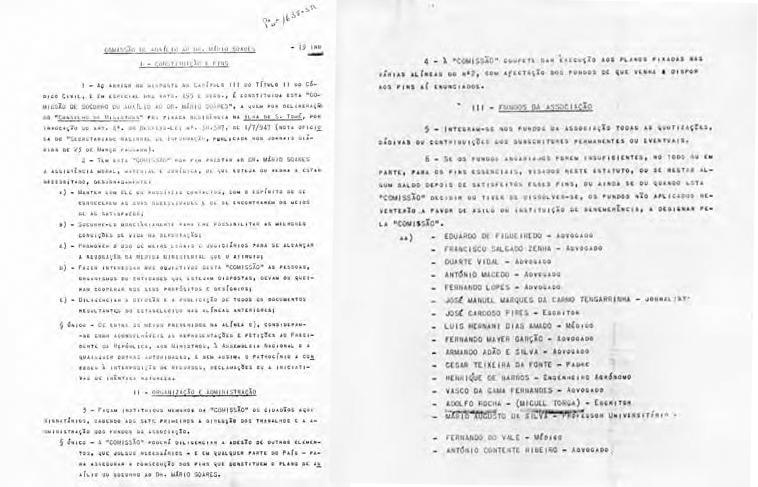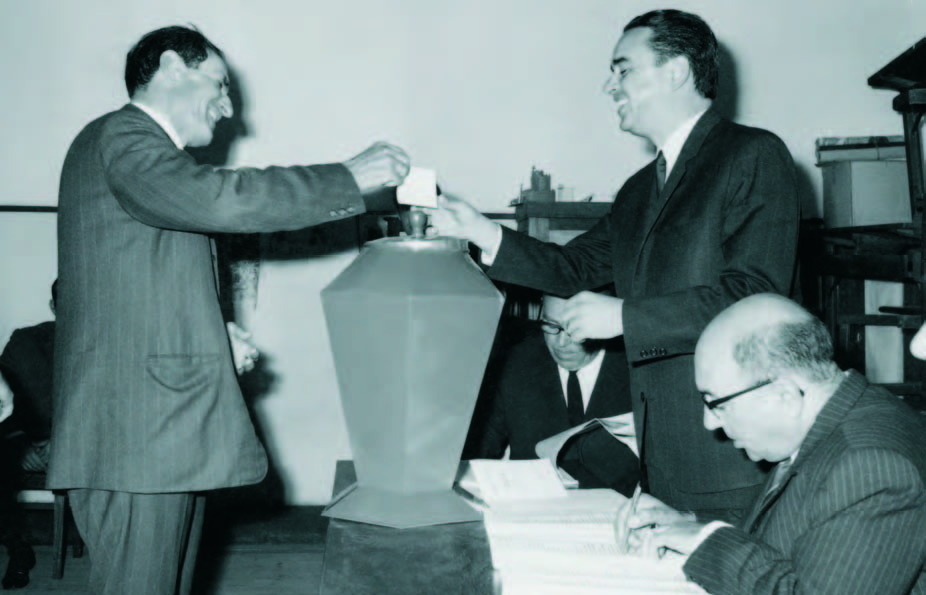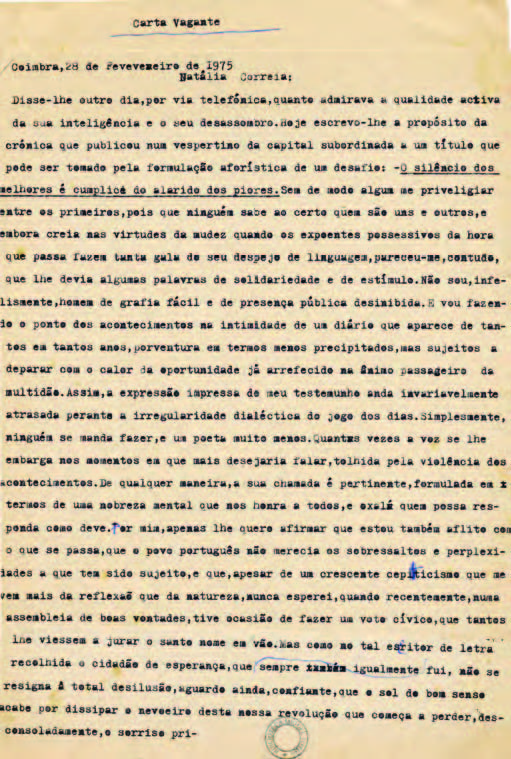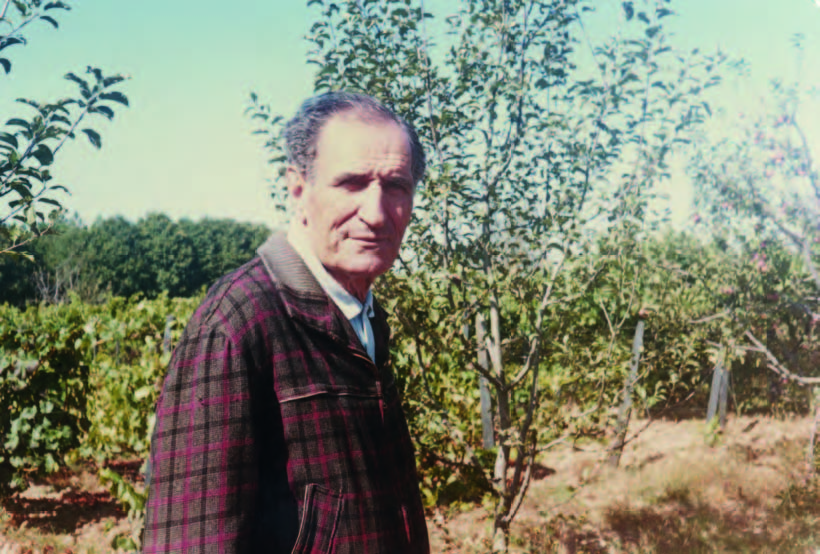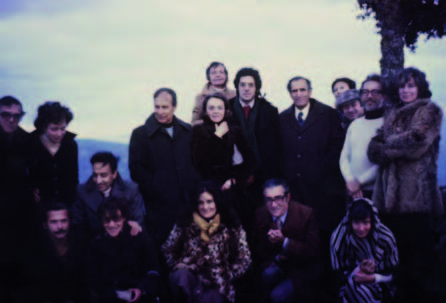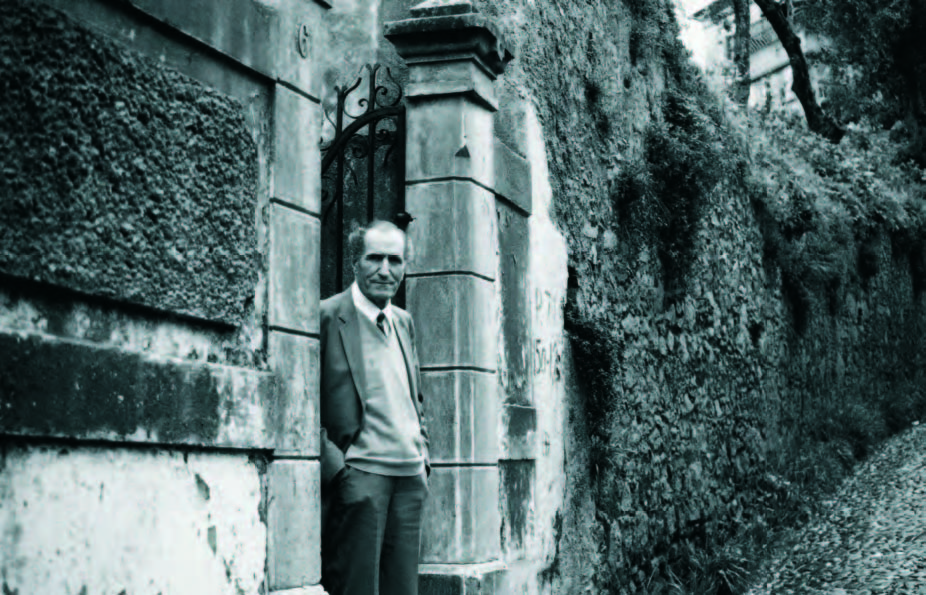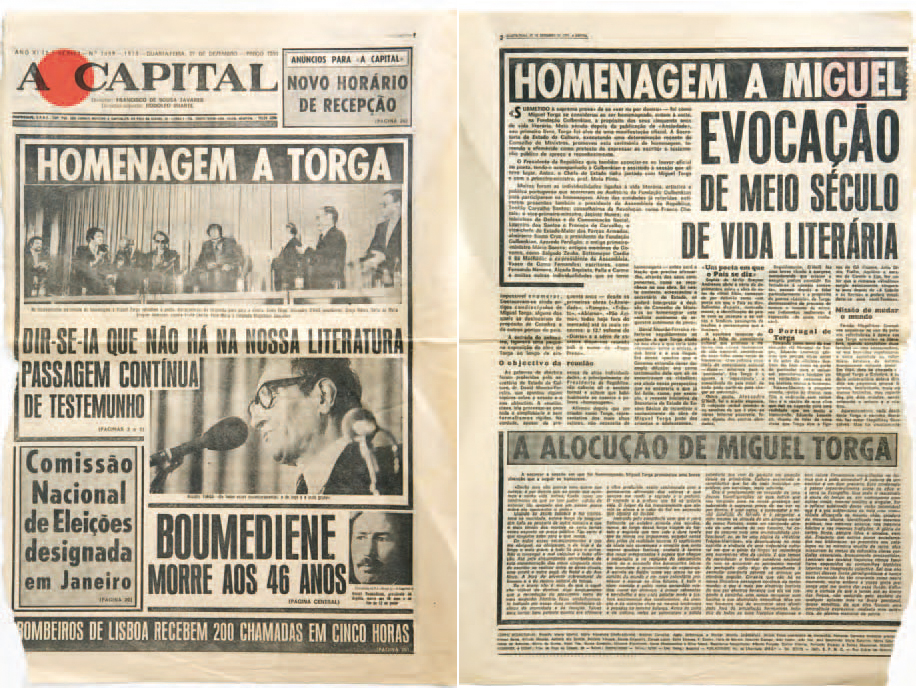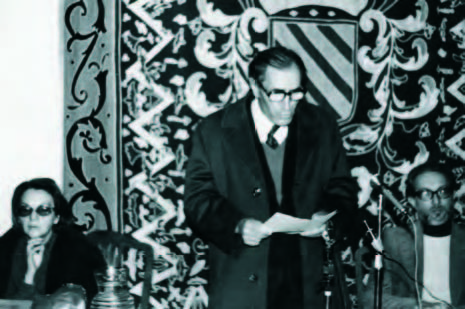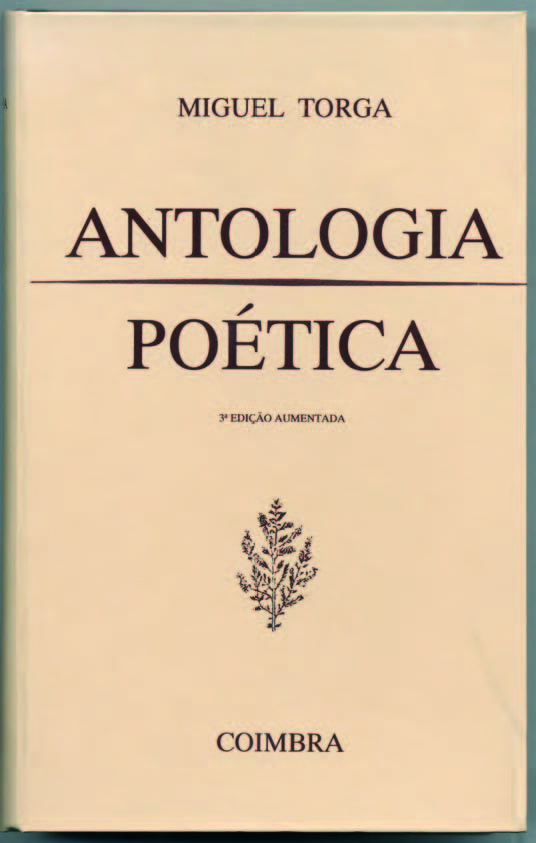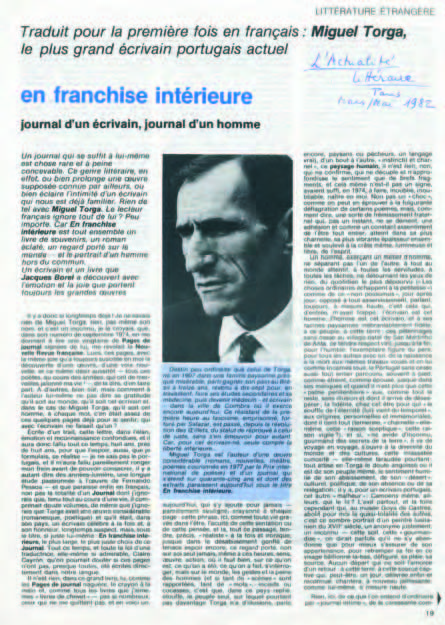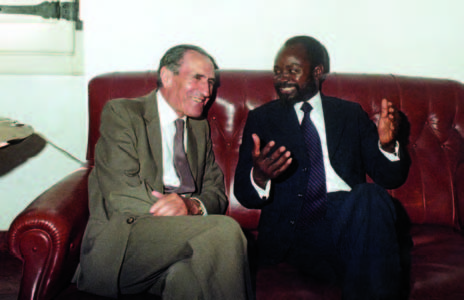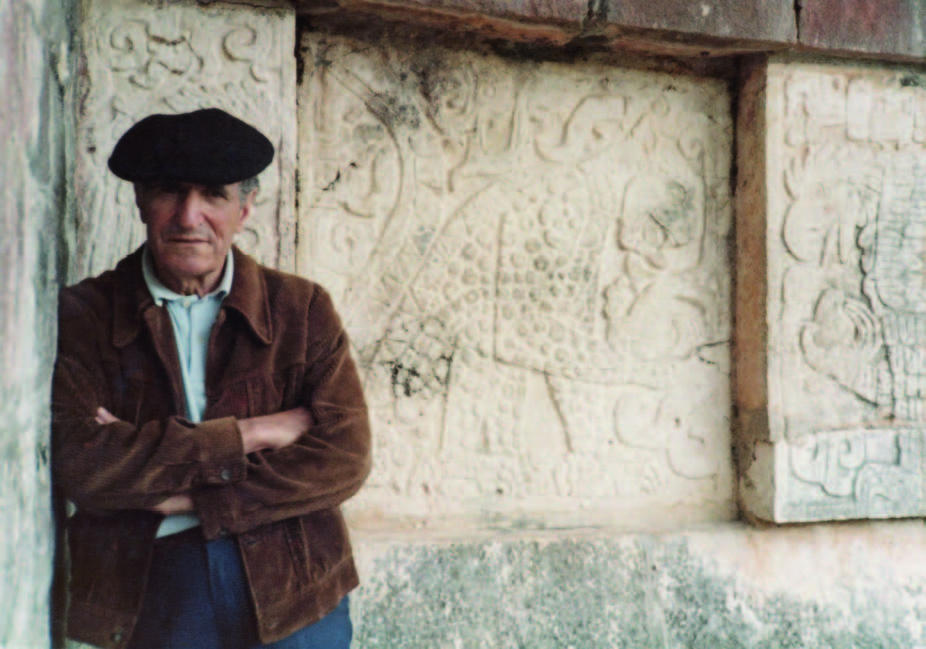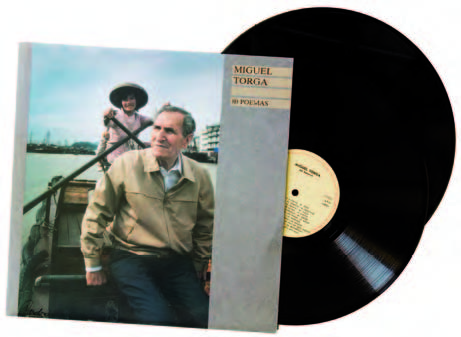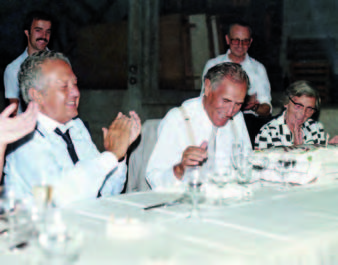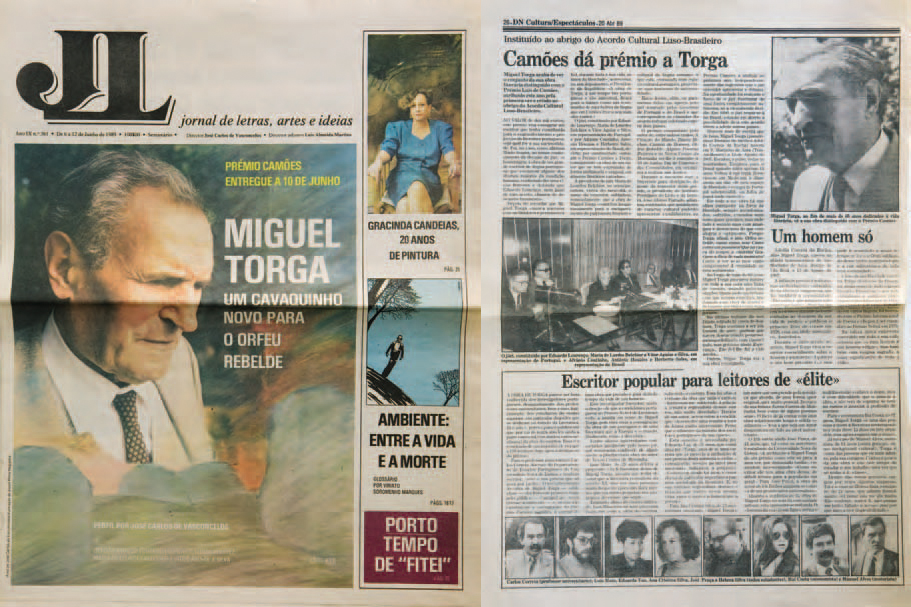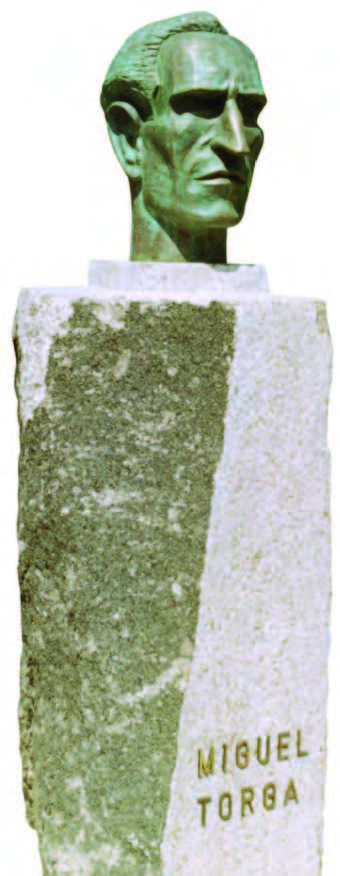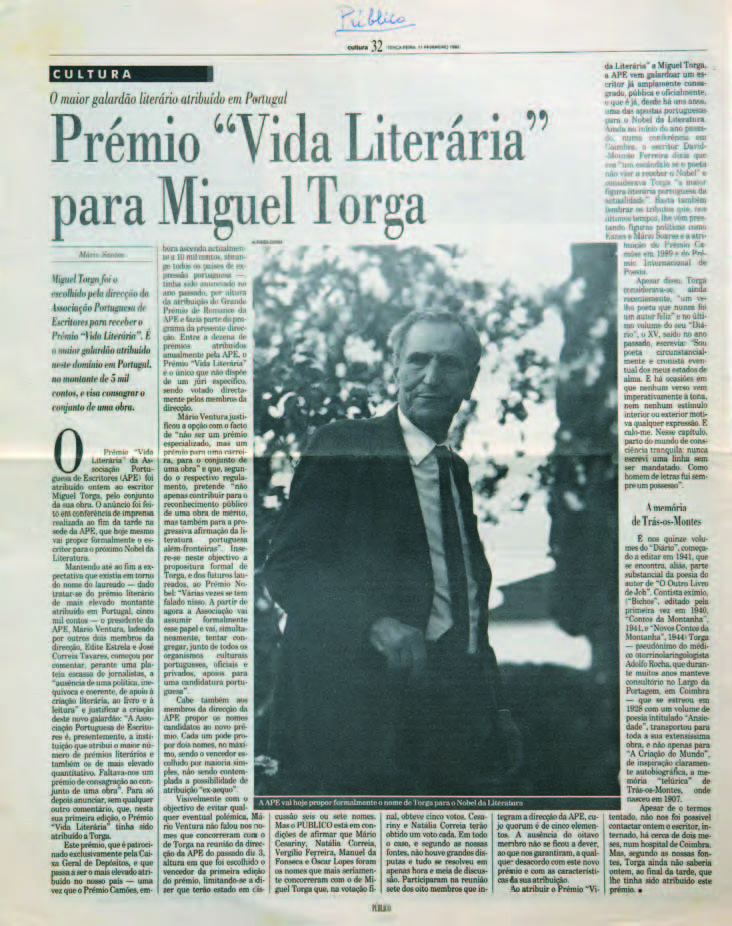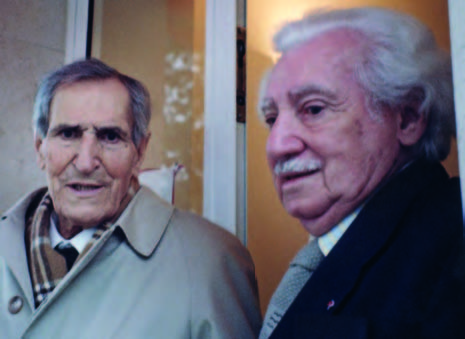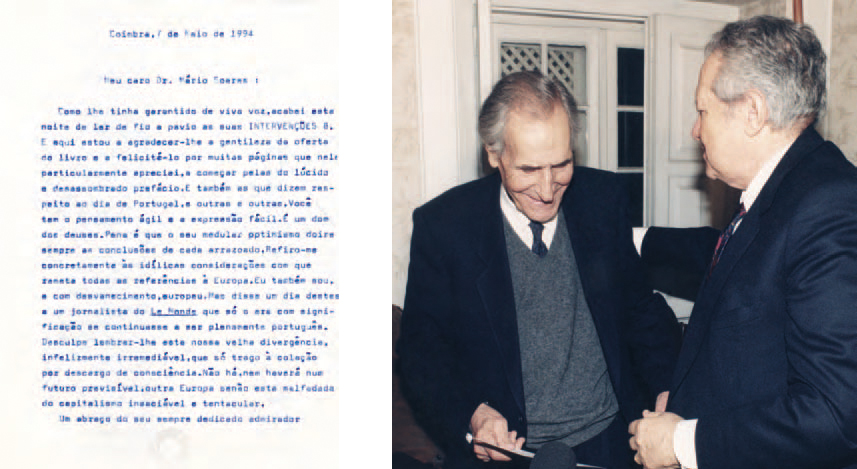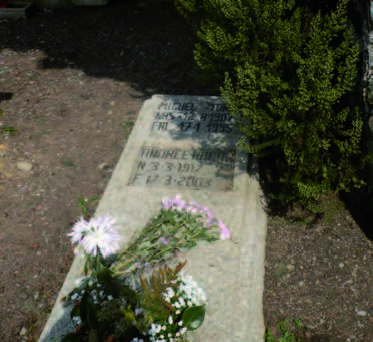1907
Adolfo Correia Rocha was born on August 12th in São Martinho de Anta, municipality of Sabrosa, district of Vila real, to a peasant family. His parents (Francisco Correia Rocha and Maria da Conceição de Barros) had two other children: José, who would soon emigrate to Brazil, and Maria, who remained in her native village.
1917
He finished, with distinction, the primary school exam in the school of Sabrosa. The teacher advised his father to send the son to study in high school. Given the economic impossibility of that suggestion, the father pondered two possibilities: going to the seminary or travelling to Brazil. The mother, doubtful of the son’s sacerdotal vocation, sent him to Oporto, where he would serve at the home of a bourgeois family. Feeling outraged and seeing no future in the condition of servant, he ultimately forced his own dismissal.
Opening of the second showroom. Extension of AM's facilities
With a recommendation from the priest of S. Martinho de Anta, Adolfo Rocha went to study at the Lamego seminary, where he spent one year only. Having lost his faith, after that first year he refused to remain in the seminary. The stay at Lamego, as he would later say in Diary, was decisive; he spent there “one of the crucial years” of his “life as a child”. The religious issue would occupy a place worthy of record in the work of Miguel Torga.
1920
Adolfo Rocha emigrated to Brazil, sent by his parents. He worked for five years in the farm of a paternal uncle, Fazenda de Santa Cruz, in the State of Minas Gerais. An impressive report of this period is included in the pages of “the Second Day” in The Creation of the World.
“I began to turn into a man. Amid that tropical vigour, I grew too. But while the body developed in size – every day I had the impression that I did not fit into my clothes –, the sol thrived in bitterness only. Bitterness because I felt unfairly hated by my aunt, because I was like a stranger to my uncle, because I lived tormented within freedom”
1925
Adolfo Rocha returned from Brazil. His uncle decided to compensate him for five years of work at the farm, paying for his education in Coimbra. He went to a college in Estrada da Beira (present-day Rua do Brazil) and in two years only he finished the first five years of the general high school course. He leaved the school and rented a room, to attend Liceu José Falcão (then installed in the old university college of S. Bento). He submitted to an exam and finished in one year only the two last years of high school.
1928
He began studying Medicine in the University of Coimbra. He went to live at the student residence “Estrela do Norte” [Star of the North], at nº 6 of Ladeira do Seminário. Adolfo Rocha published his first book, Ansiedade [Anxiety], a collection of poems with a title that would prove emblematic within his eventual literary career. The book was never republished. In 1981, when organising his Antologia Poética [Poetic Anthology], Miguel Torga recovered one verse only from this first book: “(…) I feel fear in reverse (…)”.
1929
Adolfo Rocha began attending the literary meetings at café Central and began his collaboration with Presença [Presence], a magazine founded two years before by Branquinho da Fonseca, João Gaspar Simões and José Régio. Contact with the Presença group was crucial for the poet’s aesthetic-literary education. He gained at this time a fascination for cinema (accounted for in the early volumes of his Diary) and for certain authors that would deeply mark him (Goethe, Dostoyevsky, Proust, Gide, Jorge Amado, José Lins do Rego, Cecília Meireles, Jorge de Lima). His first participation in the magazine took place in n.º 19 (February-March), where he published the poem “Atitudes” [Attitudes]. In that year he collaborated in two more issues of Presença: n.º 22, with the poems “Baloiço” [Swing] and “Inércia” [Inertia], and n.º 23 with the poem “Remendo” [Patch].
1930
He continued to collaborate with Presença: in n.º 24 (January), two poems were published (“Balada da Morgue” [Ballad of the Morgue] and “Compenetração” [Insight]) and in n.º 26 (April-May) a text in prose was published (“O Caminho do Meio” [The Middle Way]). He published Rampa [Ramp], a poetry book launched by Presença. On June 16th Adolfo Rocha, Edmundo Bettencourt and Branquinho da Fonseca sent a “Letter to José Régio and João Gaspar Simões, editors-in-chief of Presença”, communicating their departure from the group: “it is a ship that does not match our course or the North of each of us…// Hence we leave it: relieved of our destinies, may she better arrive…”
The letter, publicised as a flyer, caused the first split within Presença. The reasons forwarded for the exit concerned essentially what the signatories deemed a distortion of the initial spirit of the project, accusing the editors-in-chief in question of limiting the creative freedoms (“Presença points us, self-assured, towards the perspective of one type of freedom only”) and imposing literary guidance on the group (“Presença conceives masters and disciples with that conventional interpretation, in which masters produce lessons for those that they deem pupils”).
Given the despondency of Branquinho da Fonseca, subsequent to falling out with Presença, Adolfo Rocha wrote to his friend, on July 27th, taking responsibility for the dissidence (in The Creation of the World, Miguel Torga, referring to this episode, mentions the “split in the group, which I was mainly responsible for”).
With this friend he founded the magazine Sinal [Sign], which proved ephemeral: only one issue was published, in the month of July, with the exclusive collaboration of the two young writers (Branquinho da Fonseca signs with the pseudonym António Madeira). Note the text by Adolfo Rocha, “poetic meditation about a letter that reached its destination”, in which one perceives the vehement attack on the former companions of Presença.
A global self-assessment of this failed project was carried out by Torga in “The Third Day” of The Creation of the World: ”Good intentions of making it a lighthouse with new light were not enough. I had overestimated my own forces. I had been able to disagree with old companions, I had had the courage to leave the movement and bear all consequences, but I lacked voice to say where I wanted to go. And I failed. The first issue that appeared was a disaster. It was naive and tumultuous. Almost all by myself, besides that expressive stuttering, it also showed evidence that did not recommend it to anyone: my solitude”.
Fernando Pessoa wrote a letter to Adolfo Rocha, thanking him for the copy of Rampa that he had been sent and offering some advice on how to view sensitivity and intelligence in poetic art. Adolfo Rocha replied resoundingly, disagreeing with Pessoa and forwarding his point of view. Pessoa would again write a long letter developing his aesthetic ideas.
1933
Adolfo Rocha graduated in Medicine.
Coimbra, December 8th 1933
“Physician. Following the tradition, as soon as the beadle said yes, the teachers allowed me to prescribe enemas to Humanity, acquaintances and strangers tore me from head to toe. They left the cape only. And there I came down the street, as close as I could to my own reality: a naked man, involved in three metres of blackness, stranded from one side to the other by deep terror that does not say whence it comes or whither it goes.” (Diary I, 1941).
He returned to S. Martinho de Anta to practice as a clinician.
1934
He published the novella A Terceira Voz. With this book he took the literary name Miguel Torga. In the preface, the farewell to his given name is signed by Adolfo Rocha: With a kiss I deliver him to you. He is called Miguel Torga. We re brothers and have the same richness. But days ago we noticed this simple thing: for one of us to appear as Christ in your eyes, the other one would necessarily have to play Judas. And I sacrificed. […] You will stay, Miguel Torga, but do not call me Judas, because only for legal purposes (as the deed must open with all ceremonies in style) do I conform to be he who, filled with remorse, hung himself from a fig tree and, hanging from it, lies, ad aeternum dead, eaten by vermin and with his tongue out… Adolpho Rocha The name “Torga” refers to the mountain heather and the name “Miguel” is taken as homage to Miguel de Cervantes and Miguel de Unamuno, two great figures on Iberian culture. He left S. Martinho de Anta and moved to Vila Nova, a borough of the municipality of Miranda do Corvo, in the district of Coimbra, where he worked as a general practitioner. In “The Third Day” of The Creation of the World, Miguel Torga admirably describes the obstacles that he faced in his new functions: “An old and routine Portugal, of lords and servants, was alive and present there. Empty-handed, may no one ask for justice, divine comfort, education or health. Parasites of the people, the priest, the physician, the teacher and the judge, in the name of God, of knowledge, of the law or the Asclepius, would demand all forms of vassalage, beginning with the most concrete of all: the tithe of the fruits of earth”
1935
He rendered homage to Fernando Pessoa, in a note of the Diary, upon the poet’s death:
Vila Nova, December 3rd 1935
Fernando Pessoa died. I barely finished reading the news in the newspaper, closed the door of my practice and walked around the hills. I wept with the pine trees and cliffs for the death of our greatest poet of today, who Portugal saw pass inside a coffin to eternity without at least asking who he was.
(Diary, I, 1941).
Throughout the work of Miguel Torga, admiring references to Fernando Pessoa recur. In 1983, he wrote that “no one before him had carried out the miracle of creating from the root a Portugal made of verse.” (Diary, XIV, 1987)
1936
He published O Outro Livro de Job [The Other Book of Job], a poetry book, which thrived in the Portuguese literary milieu and affirms the humanist immanence of Torga’s poetry. Miguel Torga founded, with critic Albano Nogueira, the magazine Manifesto. Issue n.º 1 was published in January. The section “Via Pública” [Public Way], a regular feature of dialogue and intervention, rendered one of the first homages to the poet of Message, recently perished (“Fernando Pessoa was perhaps the greatest Portuguese poet of this century. Magnified by his isolation, obscured by his just partially published work, – it is still early to judge”). This space would publish small interventive texts, namely in n.º 2, published in the month of February, expressing support to Thomas Mann, when he renounced German nationality for political reasons. Manifesto is a magazine that, contrarily to the psychologist and aesthetic trend of Presença, wishes to pay attention to the writer’s intervention in society, and proposes art rooted on reality, as states Torga in “The Third Day” of The Creation of the World: “We wanted rebel art, rooted on circumstances. Vanguarda [cryptonym of Presença] never valued reality sufficiently. The old bourgeois world, shaken in its structures, struggled in the cusp of agony, while overseas the first signs arose of another human adventure, and it languished in its macerating subjectivism. That persistent introspective attitude diminished the reach of the renovating effort that it had made and felt legitimately proud of, but had given fruit only aesthetically”
1937
He published “the Two First Days” of The Creation of the World, an autobiographic novel. In December of that year he travelled to Europe and returned in January of the following year. He crosses Franco’s Spain, amid the civil war, and travelled to France, Italy, Switzerland and Belgium.
Marseilles, December 25th 1937 […] Travelling, in a deep sense, is dying. It is to no longer be basil at the window of the room and fall apart in astonishment, disillusion, longing, tiredness, movement, through the world. At this time, lying here in the bed of some Hotel Continental, hearing the steps of a million people in the Canebière, what am I? Pure dead resonance of a remote life. When I rise tomorrow, and am again basil in my land, what will I hold in my hand of this day, this hour, this great city and what I was in it? Nothing, because that was nothing of what Lazarus brought form the grave. (Diary I, 1941) Besides including annotations of this trip in the Diary, that experience was reported in The Fourth Day of The Creation of the World. He regularly collaborated with Revista de Portugal, directed by Vitorino Nemésio, the inaugural issue of which was published that year. Until number 10 (November 1940), he published texts in all issues of the magazine: from pages of Diary and The Creation of the World to short stories in Bichos and also some poems.
In the first volume of Diary, he recorded in the month of September a trip to the spa of S. Vicente for treatment (“one more day lost sulphuring my nose”).
Stays in several spas were mandatory routine in the poet’s holidays. Fifty years later, he noted in Diary XV:
Chaves, August 29th 1987 The usual fifteen therapeutic days ingesting warm lymph. I am a physician, but I believe more in nature than in science. And I have votive inscriptions in all fountains of Portugal
1938
He published “The Third Day” of The Creation of the World.
He specialised in otolaryngology in the School of Medicine of the University of Coimbra.
Due to difficulties with Censorship, in the month of July the fifth and last issue of the magazine Manifesto was published. In it, as in its predecessor, published in July 1937, the sole name mentioned as editor-in-chief was Miguel Torga. Moreover, n.º 5 is exclusively made of texts by Torga. This magazine represented his last intervention in a collective project.
From here his literary career stood out with notable spirit of independence. He carried on publishing his work always in author’s editions, refusing to send books to censorship.
He met Andrée Crabbé, his future wife, at the home of Vitorino Nemésio, in Coimbra.
1939
In the month of June he established himself as an otolaryngologist in Leiria, living in n.º 5 of Rua Comandante João Belo, the building that also hosted his practice. He kept on going to Coimbra on weekends to meet with a group of writer and intellectual friends (António de Sousa, Paulo Quintela, Vitorino Nemésio, Afonso Duarte, Martins de Carvalho…).
The stay in Leiria was a milestone. Forty years after leaving the city, he wrote in Diary:
“This land was the great crossroad of my destiny. Here I identified and chose the paths of poetry, freedom and love, without listening to the wise voices of prudence, which foresaw the worst. Here, thus, I risked everything for everything, turning weakness into force, doubt into certainty, despair into hope”
November 20th 1980, Diary, XII.
He published “The Fourth Day” of The Creation of the World. This narrative, by offering the testimony of a trip to Italy and the crossing of Spain, in full civil war, is a clear denunciation of Francoism and Mussolini’s fascism.
On November 30th, the secret services of PVDE, ordered by the Homeland minister, issued a “confidential” order “for the apprehension of the book ‘The Fourth Day of The Creation of the World’, by Miguel Torga, and to arrest the latter” [process 1514/39 (nT4598)].
Miguel Torga was arrested by the PSP of Leiria. Copies of the book were apprehended from several bookstores in the country.
On December 2nd, the secret services of the delegation of PVDE in Lisbon requested the transfer of Miguel Torga to Lisbon. On December 3rd, he went to the main office of PVDE, in Rua António Maria Cardoso, before being taken to the prison of Aljube.
In jail, he wrote one of his most famous resistance poems, “Ariane”, included in volume I of Diary.
1940
Miguel Torga was released on February 2nd, by order communicated by telephone by the Homeland minister to the PVDE Delegation in Lisbon. He married Andrée Crabbé, in Coimbra, on July 27th. The best men in this marriage were friends Paulo Quintela and Martins de Carvalho. He published Bichos, one of the most original short story books in Portuguese literature, which would become his greatest literary success.
1941
He published volume I of Diary, beginning a monumental and very unique work in intimate tone (sixteen volumes as a whole would be published).
He printed the theatre work Terra Firme [Firm Land]. Mar [Sea] (in 1947 an autonomous edition of Terra Firme was launched; the same would happen later with the play Mar, of which a separate edition emerged in 1958).
Also this year he published the short story collection Montanha [Mountain], which PVDE would seize. Miguel Torga published an edition in Brazil, in 1955, with the title Contos da Montanha [Tales of the Mountain]. The book circulated underground in Portugal until 1968, when it was again published in Coimbra, in an author’s edition.
He moved to the city of Coimbra, in n.º 32 of Estrada da Beira.
He opened a practice in a floor of Largo da Portagem, n.º 45.
In the Second Congress of Trás-os-Montes, held in the casino of Pedras Salgadas, he gave a conference on September 11th under the title “A Marvellous Kingdom”. This text about Trás-os-Montes was later included in the book Portugal.
1943
He published volume II of Diary and the poetry book Lamentação. He also printed the novella O Senhor Ventura. This book was rewritten in 1985, the year of the 2nd reviewed edition (“Patiently, I cleaned if of its main impurities, I fixed the most wrongful behaviours, I tried, ultimately, to make it legible”). The author obsessively reviewed his texts; and many were even rewritten, as was the case of O Senhor Ventura, 42 years after its first publication.
1944
He published the poetry book Libertação. That year he also printed Novos Contos da Montanha [New Tales of the Mountain], one of his most renowned books.
Two short stories of this book (“O caçador” [The hunter], “A caçada” [The hunt]) explicitly reference hunting, one of Torga’s passions.
S. Martinho, October 3rd 1949
I was not yet able to explain the cause of this feeling of safety that is taking me when I dive into the mountains to hunt. It is a peace of preservation, anonymity, intangibility. [… ] But free in these cliffs, in perfect balance of soul and body, I feel the plenitude of being normal, married and in harmony with the surroundings.
(Diary, V, 1951)
On February 5th, he gave a conference about the city of Oporto in Clube Fenianos Portuenses (the text would be published, that same year, with the title “Oporto”, and would later be included in the book Portugal).
Sophia de Mello Breyner Andresen attended the conference and was introduced to Miguel Torga by mutual friend Fernando Valle Teixeira. The meeting between Sophia and Torga was crucial for the former; subsequent to it, Sophia sent 12 poems to the author of O Outro Livro de Job. Torga expressed great interest in reading more poems and, that same year, in Coimbra, the first book by Sophia, Poesia [Poetry], was launched in Coimbra. The reciprocal friendship between the two authors lasted throughout the years; and it was the situation of Torga, arrested because of a book, that led Sophia, in 1969, to join as a founding member of the “National Commission to Rescue Political Prisoners”.
He gave another conference (“Eça de Queiroz – a problem of conscience”), in the city of Oporto, at the end of the year (November 24th), during the commemorations of the centenary of the author of The Maias.
1946
He published the poetry book Odes and volume III of Diary.
This year he published the poem “Federico García Lorca” heading the Antologia Poética de Federico García Lorca (Coimbra Editora). The book offers an introductory study by Andrée Crabbé Rocha; the translation of poems is by Eugénio de Andrade.
On April 25th, he received a letter from the captaincy of the port of Figueira da Foz waiving the medical service provided to the Fishermen’s Home of Buarcos. The political motivations are evident at the root of this dismissal.
The Teatro Moderno of the School of Law of the University of Lisbon staged the play Mar (in April of the following year this academic theatre group staged the play in Coimbra, in Teatro Avenida).
1947
He published Sinfonia [Symphony], a dramatic poem. Andrée Crabbé Rocha was fired from as a teacher of the School of Letters of the University of Lisbon, due to her democratic convictions (she created a special exam term for pupils that had jointed a strike during the normal evaluation period). The political reasons for her dismissal did not exclude the fact that she was married to Miguel Torga. On June 30th, T.E.U.C. staged the play Terra Firme, in Teatro Avenida, in Coimbra, directed by Paulo Quintela.
1948
He published the book Nihil Sibi. The title, “found” in a fountain of Caldelas, is emblematic of his way of viewing poetry and stating the place of the poet:
“The poet is a fountain:/ he reserves nothing for his thirst;/he also sings, giving himself,/ And does not sleep, or stop”.
His mother died. He planned to launch a monthly magazine with the title Rebate. Associated to this project are Andrée Rocha, Carlos Sinde (pseudonym of Martins de Carvalho) and Eduardo Lourenço. Censorship raised obstacles and the project did not materialise.
He is prevented from leaving the country, as he notes in Diary:
Coimbra, February 24th 1948 I was denied, once again, a passport to leave Portugal. Prisoner! And see how absurd is the zeal of the police! They thought I was guided by sombre purposes of undermining order, and herein I confess that what I wanted was to see the Velázquez in Prado, and the Memlings of Bruges!
(Diary, IV, 1949)
1949
He published the play O Paraíso [Paradise] and volume IV of Diary.
In the early year he took part in the campaign of general Norton de Matos for President of the Republic. He granted an interview to Diário de Notícias (which was not published until the end of the year) and published flyers with messages sent to the people of Trás-os-Montes, in Vila Real and Chaves (documents compiled in the book Fogo Preso,1976).
“I greet you from Coimbra, this Mecca of the Portuguese fascism that we wish to overthrow. I greet you as a countryman who has always fought with his artist’s pen to end the ignominy of a whole people oppressed by one will only […]” (Message to the people of Trás-os-Montes in Vila Real sent during the electoral campaign of 1949, and published in a flyer).
He was solidary with friend Fernando Valle when this eminent figure of opposition to the regime of Salazar was sacked as deputy health delegate and Municipal Physician, for having supported the candidacy of Norton de Matos for President of the Republic.
1950
Miguel Torga published Cântico do Homem [Chant of Man], one of the uttermost points of his poetry of intervention. This book includes the famous poems: “Dies Irae” and “Ar Livre” [Free Air]. Also during this year he launched the volume Portugal, an admirable book of symbolic travel to the country and interpretation of national identity. He made a long trip by car, during more than one month, in Spain, Italy and France, with his wife and their friend Sebastião Rodrigues. The University Theatre of London staged the play Mar, directed by Ruben A., who also adapted the show for the BBC during this year.
1951
He published the volume V do Diary and the short story collection Pedras Lavradas [Mown Stones]. He was represented in the “European Poetry Encounters” in Knocke, sending a message to be read. In that text he exhorted poets to be actively committed in public on behalf of poetry:
Coimbra, July 24th 1951
[…] Thus a Congress of poets, to make clearer among us the conscience that we can and must, and the very word must bind us like an oath. Not simple conviviality, but action. An act of faith in poetry! A public commitment that we will not betray in the name of any tyranny, urgency or convenience.
[…]
(Diary VI, 1953)
1952
He published Alguns Poemas Ibéricos [Some Iberian Poems]. According to an author’s note, the poems gathered in this collection were mostly written during the years of 1935 and 1936. Other poems of the book had been published in n.º 5 of the magazine Manifesto, July 1938 (“Sagres”, “A Largada” [The Launch], “A Espera” [The Wait], “O Regresso” [The Return], “O Achado” [The Finding], “Tormenta” [Storm] and “Mar” [Sea]), in n.º 5 of Revista de Portugal, October 1938 (“Ibéria” [Iberia], “A Raça” [The Race] and “Santa Teresa” [Saint Theresa]) and in nº 8 of that magazine, July 1939 (“Viriato”, “O Infante” [The Prince], “D. Sebastião” [King Sebastian]).
1954
He published the poetry book Penas do Purgatório [Sorrows of the Purgatory].
Travelling through Spain, in the month of June, he visited Trujillo, Guadalupe, Olivença, Granada, Zamora. In Diary, while reporting the impressions left in him by such places, he reflected on the Iberian issue, which would continuously inspire him as a poet.
In early August, he travelled to Brazil, invited to the International Writers’ Congress in São Paulo. This was an important meeting held within the commemoration of the IV centenary of the foundation of the city of S. Paulo. Roger Bastide, João Cabral de Melo Neto, Robert Frost, William Faulkner and others were present. In the congress he gave a talk about the suggested subject: “America seen by Europe”. He then gave several conferences in São Paulo and Rio de Janeiro about people form Trás-os-Montes in Brazil, the drama of Portuguese emigration and Portuguese Literature.
This was an occasion for the poet to revisit places of his adolescence – the Farm of Santa Cruz and Colégio Leopoldinense:
Banco Verde, August 23rd 1954
[…] I initially believed that I would vanquish those weaknesses of emotion. Nonsense! As time went by, the critical energy fell. And today, just, I believe that is reached zero. I could confirm it recently by staring at the building of Ginásio, where the world of Culture first opened its shutters to me, and treading on the floor of the farm that I soaked in tears thirty years ago. […]
(Diary, VII, 1956).
Miguel Torga was awarded the Almeida Garrett Prize of the Commercial Athenaeum of Oporto. During the awards ceremony, on December 9th, the poet gave a speech offering to the Athenaeum the sum that he would receive, suggesting that it be used to publish the best works by young poets that had applied to the award:
[…] it is new poetry, nascent poetry, that brings hope, which I would like to see glorified in this house, under the tutelary shadow of Garrett, an eternally young poet that was not only a free poet livre, free man and free Portuguese that he also wished and was able to be.
(Diary, VII, 1956).
1955
He published Traço de União [Union Bond], a book of Luso-Brazilian-themed essays, gathering the conferences given in Brazil, the preceding year, adding other texts about the two poles (Portugal and Brazil); and also evocations of writers (José Lins do Rego and Ribeiro Couto). His only daughter, Clara, was born.
1958
He published the poetry book Orfeu Rebelde [Rebel Orpheus].
The play Mar was staged by Teatro Experimental do Porto, directed by António Pedro. Torga attended the show on April 28th.
On May 31st, he took part in the rally of the campaign of Humberto Delgado in Coimbra (Teatro Avenida).
“Coimbra, May 31st 1958
[…] Deaf to the opinion of the governed, power here never heard but its voice, self-rocking and hitting the walls of self-sufficiency, mirrored without deformation. But although it might be negligible and devoid of immediate action, a protest is always a protest. Once it is done, it spiritually disconnects its author from the yoke of routine that bids him, committing him publicly with subversion, solidary with other rebels, and moving passivity, the twin sister of connivance.”
(Diary VIII, 1959)
in May, at the end of the commemoration of the Silver Jubilee of the Medical Graduates of 1933, colleagues decided to honour Miguel Torga. The ceremony was scheduled for December 7th. A plaque was unveiled during this homage signalling the stay of Miguel Torga in the students’ residence “Estrela do Norte”, where he lived while studying Medicine.
In the month of June, he travelled to Spain, Andorra, France, Belgium and the Netherlands.
In Oporto, he recorded poems for an album by the publisher Orfeu, of Arnaldo Trindade.
Miramar, September 12th 1958
Recording one’s own poetry… entering a chamber of silence, reading verses and then listening to one’s own disembodied voice, alone, strangely exalted or tender, now bass, then treble, rough and smooth in the same instant, mas always afflicted, claiming in the solitude of the night as a dead soul…
(Diary, VIII, 1959)
1959
He published volume VIII do Diary. staging of the play Mar by CITAC (Theatre Initiation Circle of the Academy of Coimbra), directed by Paulo Quintela (March 15th). In the late year, Jean-Baptiste Aquarone, professor of the University of Montpellier, supported by a group of French, Belgian and Italian intellectuals, submitted to the Swedish Academy the candidacy of Miguel Torga for the 1960 Nobel Prize in Literature.
1960
In early January, the Portuguese newspaper informed of two Portuguese applications for the Nobel Prize in Literature: Miguel Torga and Aquilino Ribeiro.
Torga’s candidacy was enthusiastically supported by Sophia de Mello Breyner Andresen, Eugénio de Andrade, Alexandre O’Neill, David Mourão-Ferreira, among outros writers and intellectuals.
On February 20th, the services of PIDE seize Diary VIII in bookshops of several cities of the country.
A group of writers and intellectuals submits a petition protesting the seizure of this book. It is signed, among outros, by Fernando Piteira Santos, Pedro da Silveira, Manuel da Fonseca, Urbano Tavares Rodrigues, Jaime Cortesão, Raul Rego, Armindo Rodrigues and Manuel Mendes.
On February 25th the seizure order against Diary VIII is withdrawn; however, censorship forbids the press from mentioning the book.
in that year he made two of his “meteoric trips to Spain”, recorded in Diary. In April he went to Salamanca and Madrid; in June to Mérida, Trujillo and, again, Madrid.
1962
He published the poetry book Câmara Ardente [Ardent Chamber]
1964
He published volume IX of Diary.
1965
He published Poemas Ibéricos [Iberian Poems]. This was a review and expansion of Alguns Poemas Ibéricos, launched in 1952.
1966
Staging of the play Mar by Teatro Experimental de Cascais, directed by Carlos Avilez and with settings by Almada Negreiros (premiere on May 6th). Torga watched the show on May 28th.
1967
On September 12th, he took part in the celebration of the centenary of the abolition of the death penalty in Portugal, held in the University of Coimbra. Miguel Torga gave a conference on the occasion, then published in a print brochure by the University, which the author would include in volume X of Diary.
“Invited to take part in this colloquium to commemorate the abolition of the death penalty in Portugal, I am here in the double condition of poet and physician. The poet will represent, as he can, the indignant and fraternal ardour of those, from Villon to Victor Hugo, from Gil Vicente to Guerra Junqueiro, who protested the iniquitous nightmare, and contributed to its extinction or repulse in universal conscience; the physician will symbolise, with equal modesty, the unending phalanx of those that were always, and still are, in every society, the sworn and active enemies of any form of human annihilation”.
On December 15th, he subscribed a protest document, signed by several Portuguese politicians and intellectuals, including Mário Soares, Francisco Sousa Tavares and Francisco Salgado Zenha, sent by letter to the Speaker of the National Assembly. The document requests approval of the Law on the Press, abolition of censorship and the possibility of judiciary appeal in situations of seizure of books.
1969
He refused the National Literature Award, an official prize form the regime.
On April 19th, he received the prize “Diário de Notícias” for his most recent book (volume X of Diary), a distinction that also covers his literary work as a whole.
He took part in the II Republican Congress, held in Aveiro, from May 15th to 17th.
Aveiro, May 16th 1969
Republican Congress. As soon as I entered the room and sat, a journalist approached me requesting a word for his newspaper. And I disappointed him:
I am sorry, I am here as people, and the people, in Portugal, say nothing.
(Diary XI, 1973)
He signed the manifesto “From the Writers to the country”. The signatories propose “full reestablishment of freedoms in Portugal” and harshly criticise the political situation of the country. This document did not circulate, as its divulgation was forbidden by Censorship.
1970
In late August, he travelled by car to Germany and Italy. His wife, Andrée Crabbé Rocha, was readmitted to the School of Letters of the University of Lisbon.
1973
He published volume XI of Diary.
in May, he travelled to Angola and Mozambique, with father Valentim Marques, manager of Gráfica de Coimbra.
About the motivations of this trip he wrote in “The Sixth Day” of The Creation of the World:
He published volume XI of Diary.
in May, he travelled to Angola and Mozambique, with father Valentim Marques, manager of Gráfica de Coimbra.
About the motivations of this trip he wrote in “The Sixth Day” of The Creation of the World:
“Persuaded of that inevitable change, of unpredictable consequences, I decided to use the interregnum to travel to the lands where we fought in the absurd defence of an empire that we had not been able to build in the right time and insisted on preserving at a wrong time. Once again my ploughing ancestry resurfaced. I had trodden the North of Africa, but elusively, in a long stroll in the Greek Mediterranean. Now it would be time to feel the pulse of its warm austral heart, watching the settings of our past greatness and of our present misery”.
Political police watched every step by the writer during this trip, as prove different reports and informative notes from the Directorate-General of Security included in the process of Miguel Torga in the archives of PIDE/DGS.
1974
He took part in the feasts of May 1st in the city of Coimbra. He recorded in Diary the “gregarious explosion of joy inducing one to parade before the forces of repression sent to their barracks”. However, he questioned, wary of the direction of the winds of change: “What hidden and wise abnegation would be ready to guide the path of history in the blindness of that confidence?”
He published the Fifth Day of The Creation of the World. The book, launched one week after April 25th, covers a period of two years of the life of the writer only, mainly the episode of Torga’s arrest in 1939.
On June 1st, he took part in the first rally of the Socialist Party in Coimbra. He gave the opening speech celebrating a time of “joy and communion at the Eucharistic table of freedom”, ending with words of hope. On the 30th of that month, he took part in another socialist rally in Sabrosa.
1975
He took part, as an independent, in two other rallies of the Socialist Party (in Arganil, on March 2nd; in Lisbon, on April 20th).
He intervened civically in the press by publishing a “Vagrant letter” (published on March 6th, in the afternoon paper A Capital), replying to a text by Natália Correia, published in the same newspaper, on February 28th, with the title “The silence of the best is complicit with the fuss of the worst”.
He keeps recording in his Diary the marking events of the democratic regime recently established:
Coimbra, April 25th 1975
Serious elections, at last. And this was, in fifty years of exile in the homeland, the greatest civic consolation that I had. It was touching to see the conviction, the composure, the groom, the dignity taken by the crowd of voters walking to the polls, each aware that they were holders of precious and vulnerable richness: their vote their opinion, their determination. It seemed a transfigured people, at one time aware of the transcendence of the act that they would carry out and knowing of the circumstantial ambiguity that allowed it. Which makes the nod of freedom, and what anguish comes with the risk of losing it!
On September 27th, he gave in the radio a speech to condemn the executions of five Basque citizens perpetrated by the Franco regime.
Sinde Filipe adapted to cinema the short story “O Leproso” [The Leper] (Novos Contos da Montanha).
1976
He took part in socialist rallies held in Vila real (April 3rd), Sabrosa (April 10th), and Arganil (April 23rd).
He published Fogo Preso [Fire Held], a book of conferences on writers (Eça de Queirós and Teixeira de Pascoaes), but especially civic intervention texts, such as interviews and allocutions, from participation in the electoral campaigns of 1945, 1949, 1951, and in different moments of the period that followed April 25th 1974.
“[…] it was so compelling and subversive, at a given moment, to accuse armed power, the ceiling of every arbitrariness, as to alert present-day national conscience against the equivocations of liberation without strong vocations of freedom.
[…]
By becoming a public man, the poet lends his voice to those who lack one, and risks losing his voice and his echo.[…] harassed by the problems of national daily life, bound by dignity and summoned by one thousand appeals, I also stole from my autonomous hours as a creator some hours of direct challenge.” (from “Preface”)
In the month of May he attended a staging of Mar by fishermen of Nazaré.
Sítio da Nazaré, May 8th 1976 – “Mar” staged by authentic seamen. Actual fishermen as fictional fishermen. (Diary, XII, 1977).
in December, on Christmas day, he planted trees in the yard of the School of S. Martinho de Anta:
S. Martinho de Anta, December 25th 1976
The old school of Mister Botelho finally rebuilt and updated. More sun, more hygiene, less grammar and less spanking. But in the surrounding yard there were no mimosas of my childhood. And I spent the afternoon with iron and shovel in hand planting them. I will not be here to see them grow as in the past. Let it be. My purpose was not to re-flower the past, but to flower the future.
(Diary, XII, 1977)
1977
He published volume XII of Diary. In the month of June, he received in Brussels the International Poetry Award of the XII Biennial of Knokke-Heist, which had been granted to him on September of the previous year.
Brussels, June 6th 1977
[…] Solidary but autonomous, the poet is a rebel that knows that poetry subverts only because it transfigures, and that will always be his vanguardism. Singing in fashion, a poet dressed as a bard is no less tragic than a poet dressed as a servant. […]
(Diary, XII, 1977)
After going to Brussels, he visited London.
He collaborated in the film by João Roque Eu, Miguel Torga, a documentary broadcast in television in 1987, in four episodes.
in December he took part in a Meeting of Poets, in Solar de Mateus, with Sophia de Mello Breyner Andresen, Eugénio de Andrade, Alexandre O’Neill, Pedro Tamen, Fernando Guimarães, Vasco Graça Moura and Alberto Pimenta.
During that meeting, Miguel Torga provided participants with a guided tour to mythical places if his personal and literary geography (Panóias and S. Leonardo da Galafura); on the occasion, the poets present honoured the author of Orfeu Rebelde.
1978
Miguel Torga is once again proposed for the Nobel Prize in Literature, supported by foremost figures of Portuguese culture, as well as some foreign intellectuals and creators, including the winner of the Nobel Prize in Literature of the preceding year, Vicente Aleixandre.
On April 6th, he made a speech in the School of S. Martinho de Anta about the health conditions in the country.
S. Martinho de Anta, April 6th 1978
Speech at school. I shook all over. Here was the child that I always remained, again doing an exam. The jury even included ministers. And the subject to develop concerned sanitary abandonment of the real country. I spoke. That science this and that, that the laws of life are solidary, that the people needs concrete assistance and not curative demagogy. […]
(Diary, XIII, 1983)
In the month of September, he took part in the seminary “Rethinking Portugal”, held in Solar de Mateus.
Solar de Mateus, July 8th 1978
Rethinking Portugal. Since childhood I try to, in every way and in all places.
[…]
(Diary XIII, 1983)
he received the Medal of Honour of the International Dean Association.
On December 26th, during the commemorations of the fifty years of literary life of Miguel Torga, a session was held to honour the author, in Hall Two of the Calouste Gulbenkian Foundation. The initiative of the Secretary of State for Culture gathered writers and essayists that read texts about the work of Torga (Sophia de Mello Breyner Andresen, Alexandre O’Neill, Eduardo Lourenço, Fernão Magalhães Gonçalves, Jacinto do Prado Coelho, João Maia, Vasco Graça Moura and David Mourão-Ferreira, who held the office of Secretary of State for Culture). At the end the poet read a thankful speech, reproduced with the other interventions in a brochure by the Secretary of State for Culture. This text by Torga would then be included in volume XIII of Diary:
he received the Medal of Honour of the International Dean Association.
On December 26th, during the commemorations of the fifty years of literary life of Miguel Torga, a session was held to honour the author, in Hall Two of the Calouste Gulbenkian Foundation. The initiative of the Secretary of State for Culture gathered writers and essayists that read texts about the work of Torga (Sophia de Mello Breyner Andresen, Alexandre O’Neill, Eduardo Lourenço, Fernão Magalhães Gonçalves, Jacinto do Prado Coelho, João Maia, Vasco Graça Moura and David Mourão-Ferreira, who held the office of Secretary of State for Culture). At the end the poet read a thankful speech, reproduced with the other interventions in a brochure by the Secretary of State for Culture. This text by Torga would then be included in volume XIII of Diary:
I know that I did not write those paradigmatic books – and that persuasion was never as excruciating as at this moment, although your presence here is meant to give me that illusion. I cling to the certainty that I tried to the limit of my strength, not seduced by the nod of any applause, but in passionate anxiety, almost somatic, that they were an expressive emergency, modest but authentic, from the matrix plasma of the motherland.
Sinde Filipe adapted to cinema another short story by Miguel Torga: “O Milagre” [The Miracle] (Novos Contos da Montanha).
1979
The School of Letters of the University of Coimbra rendered homage to Miguel Torga, joining the commemorations of the fifty years of literary activity of the writer. Within this homage, held on July 2nd, chaired by the Dean of the University, an bibliographic exhibition about the author was inaugurated. On August 19th, he gave a speech about the men of Douro, in the Grand Hall of Casa do Douro, in Régua, in the closure of the Douro Fair (text included in volume XIII of Diary).
1980
Miguel Torga was awarded the Morgado de Mateus prize, ex-aequo with Carlos Drummond de Andrade.
Solar de Mateus, June 8th 1980
[…] Temperamentally averse to awards of any nature, I nevertheless accepted some. There is no possible uniformity of criteria given the surprising and paradoxical diversity of life. What could I do? Refuse they systematically, purely and simply? I did so when everything depended on my exclusive will. On other occasions, however, choosing was not that easy. Ultimately, not even freedom is free. […]
(Diary, XIII, 1983).
Televised adaptation of the short story “Natal” [Christmas] (Novos Contos da Montanha).
1981
He published “The Sixth Day” of The Creation of the World. It is the last volume of the autobiographic novel (in 1991, Miguel Torga published a joint edition of the volumes of the novel, launched along five decades, from the inaugural volume of “The Two First Days”, in 1937).
During this year he also published Antologia Poética [Poetic Anthology] organised by himself.
He received the Montaigne Award, of the PVS Foundation in Hamburg.
Lisbon, March 10th 1981
[…] It is my long held conviction that universal culture must be a sum of all national cultures. And if one addend only is missing in the addition, that is enough for the sum to be wrong. It was Montaigne that taught us that, drafting his monumental work in his mother tongue, he, who had not learnt it until he had known cosmopolitan Latin.
(Diary, XIII, 1983)
1983
He published volume XIII of Diary.
Commemoration of the golden jubilee of the graduation in Medicine, on June 18th, in Hotel do Buçaco. Miguel Torga, as usual throughout the years in these confraternization meetings, made a speech about the event (“time has made us understood the exemplarity of certain behaviours, and that at times the shadow of a cedar and a glimmer of infinity suffice to fill a soul”).
The text was reproduced in volume XIV of Diary.
He met Samora Machel, in Coimbra, during an official visit by the President of the Republic of Mozambique to Portugal. Miguel Torga invited him to visit the Douro region.
Coimbra, October 9th 1983
Meeting and long conversation alone with the first head of State of one of our former African possessions. Retracted, entering an official hall, and after flying by helicopter in a Portuguese autumn sky, we were like the exiguous and somewhat transcendent image of two nations in dialogue, one old, completed, projected, the other younger, in process, more political reality than homeland space. […]
(Diary XIII, 1983)
1984
He travelled to Mexico, with father Valentim Marques. Recording in Diary his passage through places (Acapulco, Oaxaca, Chinchen Itza, Uxmal, Mérida, Teotihuacan, Mexico City), he reflects on the historic, social, political and religious reality.
Mexico City, March 17th 1984
[…] There are three dimensions here that violate my Lusitanian natural. Indian, which is religious oppression; Spanish, which is historic oppression, and American, which is economic oppression. And to understand them all I must force comprehension. I do not adhere to the cruelty of the first, do not justify the sectarianism of the second, and curse the vampirism of the third. […]
(Diary XIV, 1987)
1986
He recorded poems in a studio for a commemorative record to be launched the following year, on the occasion of his eightieth birthday, in publisher Valentim de Carvalho. The LP was called Oitenta Poemas [Eighty Poems].
Lisbon, November 19th 1986
Recording a record. Four hours closed in a chamber of silence reading texts with the woeful sensation of making a posthumous record as one dictating his will.
(Diary XIV, 1987).
1988
On October 29th, during the meeting of the 55th anniversary of graduation, he addresses his colleagues in a brief and lucid farewell speech. Televised adaptation of “O vinho” [The wine] (Contos da Montanha) directed by C.J. Michaëlis de Vasconcelos and starring Raul Solnado.
1989
He received the Camões Prize. He was the first author to be granted the most important literary award of Portuguese language. The prize was delivered in Ponta Delgada, during the commemorations of June 10th, in a ceremony presided by the President of the Republic, Mário Soares.
Ponta Delgada, June 10th 1989
A long life comprises all. To be born obscurely in Trás-os-Montes, wander in adolescence in Terras de Santa Cruz, range, solidary, in adult age, the present Portuguese-speaking countries fighting for independence, to visit, in old age, what is left of the Portuguese Orient, and to receive now, in this patrician and paradisiacal Azores, a prize under the aegis of Camões. In the intervals, being a full-time citizen, with a taxed job and civic duties undertaken, and a rebel poet, wary of his creative freedom, in tumultuous times, of wars, political tyranny, concentration camps, terrorism, atomic bombs and other scourges […]
(Diary XV, 1990)
on June 2nd, he was awarded the distinction of Official of the Order of Arts and Letters of the French Republic.
1990
He published volume XV of Diary.
He was honoured at Goethe Institut in Coimbra (November 23rd).
I have said roundly one day that writing is the supreme risk that a man may take, as he becomes the defendant in a perpetual court, whose judges are readers of successive generations. Still sitting on the judiciary bench today are the great and small Homers of all civilisations. Pray to God that I will not be one of the candidates to the final condemnation.
He was also honoured in the Academy of Coimbra (December 14th), during the VII centenary of the foundation of the University.
The theatre group “O Bando” staged a dramatic version of Bichos (directed by João Brites). The show was initially staged at Convento do Beato, in Lisbon, and then had representations in several cities in Portugal and abroad.
1992
He received during the year several homages:
Literary Life Prize of the Portuguese Writers Association, in its first year.
Lisbon, March 19th 1992
[…] I always exposed myself in storefronts shyly, as a contrived culprit, almost apologising to occasional readers for my boldness. Albeit vain with vocation, I wished nothing more than to fulfil it, and to be humble and freely a lone speaker speaking for many.
[…] And I dried the inkpot in order to give local and universal expression to that diversified constant. […]
(Diary XVI, 1993)
Figure of the Year Award of the Foreign Press Correspondents Association (received in Estoril on July 8th).
Écureil Prize for Foreign Literature, of the Bordeaux Salon du Livre. This award was delivered during a ceremony at the Town Hall of Coimbra:
Coimbra, September 14th 1992
[…] I had words to write many books, but none occurs to me that is worthy at crucial times like this. My voice breaks and only in the closed silence of the heart can I pay my dues. Life does not fit into a speech, as sincere and thought as it can be. Mysterious and unpredictable, it confounds the logic of any device.
(Diary XVI, 1993)
despite the homages, the year was marked by a painful event:
the closure of the medical practice of Adolfo Rocha, in the month of June. That hurt is accounted for by Miguel Torga in annotations of Diary. He offered surgical material to the Misericórdia Hospital of Arganil, where he operated for years; and the furniture to the Borough of S. Martinho.
In the United States, in the month of October, an international colloquium is held about Miguel Torga, in the University of Massachusetts, Amherst
1994
From March 3rd to 5th, in Oporto, an International Colloquium was held about Miguel Torga, an initiative of University Fernando Pessoa, with the participation of professors, researchers, translators and writers. The documentary “Torga” by Jorge Campos was broadcast in RTP2. He received the 1993 Critics Awards of the Portuguese Centre of the International Association of Literary Critics. On September 7th he was honoured by the government of Brazil, in a ceremony held in the Embassy of Brazil in Lisbon. He sent a message to be read in the 1st meeting of the International Parliament of Writers, held in Lisbon, in late September. Homage in the District Council of Coimbra of the Bar Association. Cunha Rodrigues, Attorney-General of the Republic, gave a conference about the representations of justice by Miguel Torga.
Final Note
To prepare the present chronology of the life and work of Miguel Torga I resorted to reading the sixteen volumes of Diary and the autobiographic novel The Creation of the World. I also consulted for this purpose the documentation of the legacy of Miguel Torga deposited in the Municipal House of Culture of Coimbra. I also highlight reading the book by Clara Rocha, Miguel Torga: Fotobiografia, Lisbon, D. Quixote, 2000, a fundamental piece to study biographic aspects of Miguel Torga.
other bibliographic sources: Andrade, Carlos Santarém, Os dias de Coimbra na obra de Miguel Torga, Coimbra, Municipality of Coimbra / Regional Coordination Commission of the Centre, 2003; Melo, José de, Miguel Torga, Lisbon, Arcádia, 1960; Melo, José de, Miguel Torga: fotobiobibliografia, Aveiro, Estante Editora, 1995; Moreiro, José Maria, Eu, Miguel Torga, Lisbon, Difel, 2001. Nunes, Renato, Miguel Torga e a Pide, Coimbra, Minerva, 2007.
Carlos Mendes de Sousa


